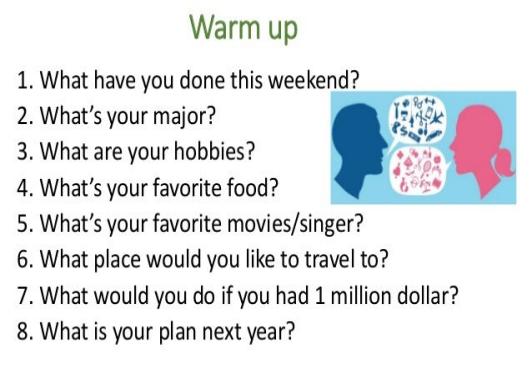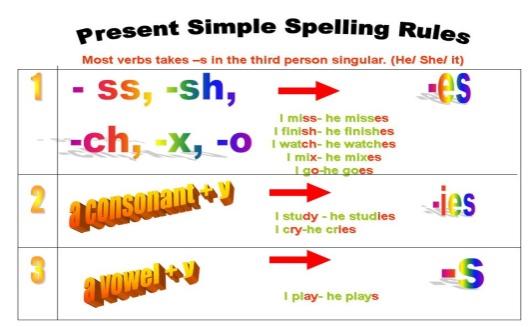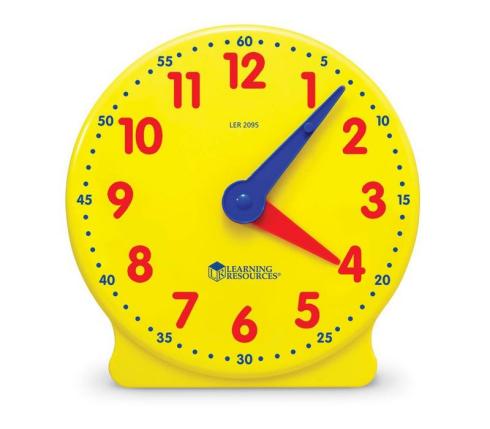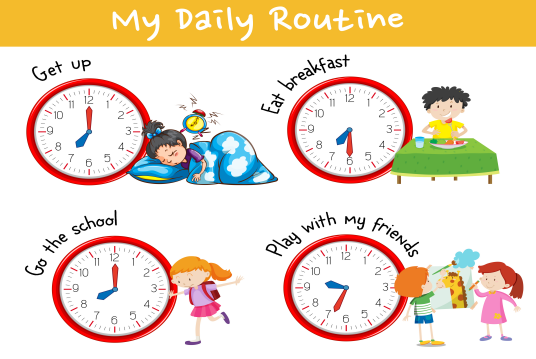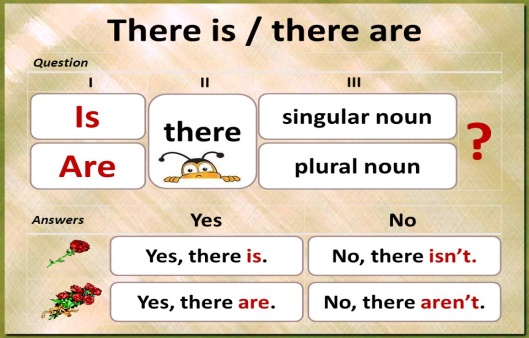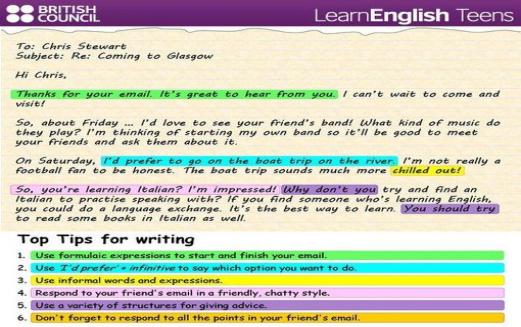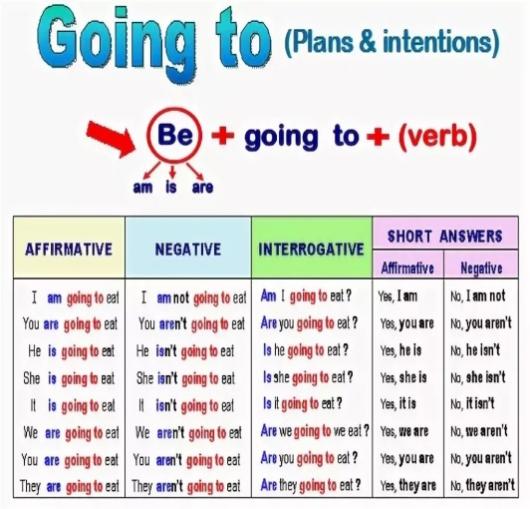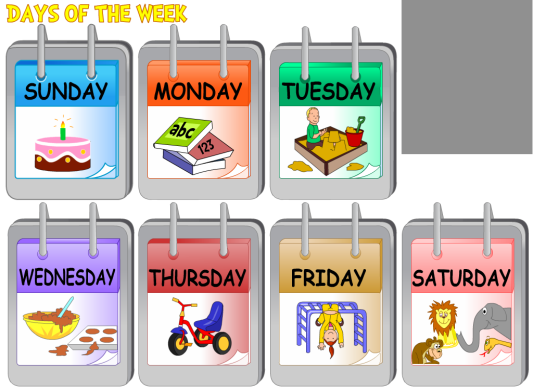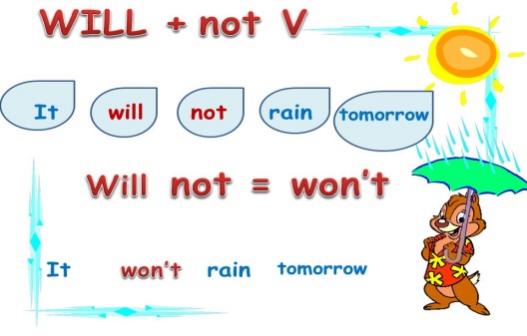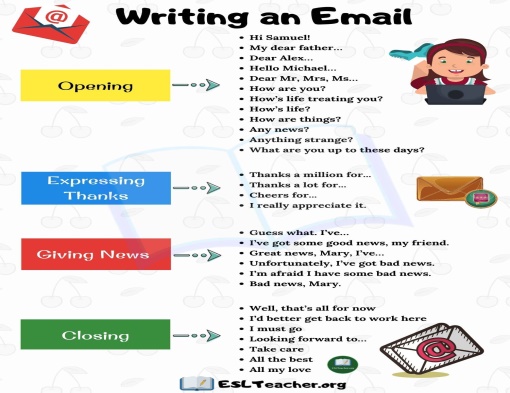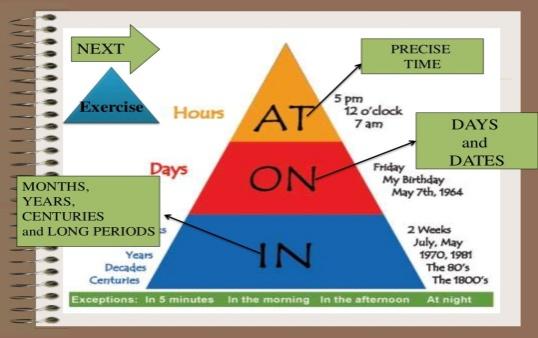Бұл материал сайт қолданушысы жариялаған. Материалдың ішінде жазылған барлық ақпаратқа жауапкершілікті жариялаған қолданушы жауап береді. Ұстаз тілегі тек ақпаратты таратуға қолдау көрсетеді. Егер материал сіздің авторлық құқығыңызды бұзған болса немесе басқа да себептермен сайттан өшіру керек деп ойласаңыз осында жазыңыз

Бонусты жинап картаңызға (kaspi Gold, Halyk bank) шығарып аласыз
1 жыл бойы тегін жүктеу мүмкіндігіне ие болыңыз!

жеңілдік
Lesson plan Laser 6 term 2

Short term plan: term 2
|
Unit: 3 Our Countryside |
Lesson 25 |
||
|
Teacher name: |
|
||
|
Date: |
|
||
|
Grade: 6 |
Number present: |
absent: |
|
|
Lesson title |
On the Farm! |
||
|
Learning objectives |
6.3.2.1 ask more complex questions to get information about a growing range of general topics and some curricular topics 6.2.5.1 understand most specific information and detail of short, supported talk on a wide range of familiar topics 6.5.8.1 spell most high-frequency words accurately for a limited range of general topics |
||
|
Lesson objectives |
Learners will be able to: - familiarise students with names for animals and their young - learn the names of young animals - the value based on the integrated educational program is to educate students for justice and responsibility
|
||
|
Plan |
|||
|
Stages / Time |
Teachers actions |
Students actions |
Assessment criteria |
Resources |
|
|
Beginning of the lesson Warming-up 3 min. Pre-learning «Brainstorming» method 7 min. |
Organization moment : 1.Greeting. Ask about the weather. The teacher sets the lesson objectives, letting students know what to anticipate from the lesson.
Lead – In
|
The aim: To develop pupils speaking skills and create friendly atmosphere Students' attention is drawn to the lesson. Students say different words from the picture •Learners remember previous lesson vocabulary •Learners answer the questions What do you see in this picture? What kind of animals do you see? Do they farm animals or wild animals? |
The teacher to assess learners for their ability. “Good job! Well done!” Formative Assessment
Good job! Descriptor: - remembers the lesson passed Point 1 Assessment criteria make basic statements related to |
Pictures worksheet Picture |
|
|
Middle of the lesson Presentation part. 30 min |
Ex:1 P:31 • Ask students to say what might be a good heading for the first paragraph. Explain that a heading gives the gis of a paragraph in just a few words.10 Pick volunteers to read each of the remaining paragraphs aloud. Give students a short time to match each paragraph with the headings. Review answers orally Ex: 2 P: 31 • Ask students to think about the different people and animals mentioned in the advert. Who did they learn about by name? Which others were mentioned? Ask students to read the advert again, to themselves this time. Give them a short time to complete the table. Check answers orally and/or by writing them on the board. Ex: 3 P: 31 • Give students a short time to answer the questions usin a word or short phrase. Invite them to refer back to the advert if necessary. • Review answers orally Conclusion during the lesson some tasks differentiated by outcomes of the students and by their abilities. |
• Learners read the advert and match each paragraph with a heading. ANSWERS 1 b 2 f 3 d 4 a 5 e 6 c • Learners read the advert again and complete the table ANSWERS Types of animal Cat dog hamster farm animal(s) cow(s) chicken(s) horse(s) sheep sheepdog duck(s) goat(s) baby animal(s) chick(s) duckling(s) calf (calves) pony (ponies) lamb puppy (puppies) kitten(s) donkey • Learners write a word or short phrase to answer each question. ANSWERS 1 in a town or a city (Do you live in a town or a city? These days, most people do.) 2 seven/7 (it's open to the public seven days a week,...) 3 5.30am (Farm life starts early (at 5.30am!)) 4 six/6 o'clock/6am (People start arriving at six o'clock.) 5 seven/7 in the evening/seven/7 o'clock/7pm (...and leave at seven in the evening.) 6 (a lovely) lunch (We have a lovely lunch at one o'clock,...) 7 tea and cake (...and tea and cake in the afternoon.) 8 on the duckpond (Young children love feeding the ducks on the duckpond.) |
Descriptor: - read the advert - match each paragraph with a heading Total: 3 point Self assessment Differentiation: «Verbal support» method is used to help Ss use new words in the sentences. Descriptor: - Learners read the advert again - complete the table Total: 3 point Descriptor: - write a word or short phrase to answer each question Total: 3 point -Make CCQ questions Yes / No |
Card Worksheet Students book |
|
|
End of the lesson 5 min |
FEEDBACK Learners provide feedback on what they have learned at the lesson. Ex: P: Home task: Write the days |
What worked well for you in today’s class? What could we have done differently to make today’s class better for you? What are you wondering about after today’s lesson? What did you find difficult about today’s lesson? |
Poster Success |
||
|
Additional information |
|
||||
|
Differentiation – how do you plan to give more support? How do you plan to challenge fast finishers? Fast finishers: Ask students to note down what the exact name of each subject is. Answers baking
technology management |
Assessment – how are you planning to check students’ learning? |
||||
|
Reflection Were the lesson objectives/learning objectives realistic? Did all the learners achieve lesson objectives/learning objectives? If not, why? Did my planned differentiation work well? Did I stick to timings? What changes did I make from my plan and why? |
Use the space below to reflect on your lesson. Answer the most relevant questions from the box on the left about your lesson? |
||||
|
Summary evaluation What two things went really well? Consider both teaching and learning. 1. 2. What two things would have improved the lesson? Consider both teaching and learning. 1. 2. What have I learned from this lesson about the class or an individual student that will inform my next lesson? |
|||||
Short term plan: term 2
|
Unit 3 Our Countryside |
Lesson 26 |
||
|
Teacher name: |
|
||
|
Date: |
|
||
|
Grade: 6 |
Number present: |
absent: |
|
|
Lesson title |
Grammar 1 Present simple |
||
|
Learning objectives |
6.1.6.1 organise and present information clearly to others 6.5.2.1 write with minimal support about real and imaginary present events, activities and experiences happening now on a range of familiar general topics and some curricular topics 6.3.2.1 ask simple questions to get information about a limited range of general topics |
||
|
Lesson objectives |
Learners will be able to: - facilitate students' understanding of the functions and usage of the present simple - the value based on the integrated educational program is to educate students for justice and responsibility |
||
|
Plan |
|||
|
Stages / Time |
Teachers actions |
Students actions |
Assessment criteria |
Resources |
|
|
Beginning of the lesson Warming-up 3 min Pre-learning «Brainstorming» method 7 min. |
Organization moment : 1.Greeting. Ask about the weather. The teacher sets the lesson objectives, letting students know what to anticipate from the lesson. Warming up Where are you from? How old are you? What color is it? How many students are there in class? What day of the week today? Ask a few pupils to stand up and stand in a row. Ask the rest of the class questions to revise the ordinals. Lead – In
|
The aim: To develop pupils speaking skills and create friendly atmosphere Efficiency: By wishing each other they feel better and feel the support of others Students of the class are listed. Students' attention is drawn to the lesson. Determines the topic and purpose of the lesson •Learners remember previous lesson vocabulary Students say different words from the picture Answer the question. |
The teacher to assess learners for their ability. “Good job! Well done!” Formative Assessment
Good job! Descriptor: - know daily routines vocabulary - know prepositions of place Point 1 Assessment criteria - Learners have met the learning objectives if they can talk about numbers and location; |
Pictures worksheet Student’s book |
|
|
Middle of the lesson Presentation part. 30 min |
Ex:1 P:32 • Give the students a short time to circle the correct word or phrase to complete each sentence. • Review answers orally Ex: 2 P: 32 • Review the correct way to form a negative with the verb do, ie don't/doesn't. Go over the first sentence together. • Give students a short time to make the rest of the sentences negative. Go round the class helping students where necessary. Check answers orally and/or by writing them on the board. Ex: 3 P: 32 • Review the correct way to form a question from a statement, ie placing Do/Does at the beginning of the sentence and removing the -s or -es from the verb. Go over the first sentence together. Give students a short time to write the rest of the questions. Go round the class helping students where necessary. Check answers orally and/or by writing them on the board. Ex: 4 P: 32 • Students should be able to complete this exercise on their own. Give them a short time to put the verbs into the correct form. Assign students to read out the paragraphs when they have finished . |
• Pupils choose the correct word or phrase. ANSWERS 1 wake up 2 eats 3 live 4 go 5 like 6 want • Pupils make the sentences in exercise 1 negative ANSWERS 2 This dog doesn't eat chocolate 3 The ducks don't live on the duckpond. 4 We don't go to the farm every Saturday. 5 I don't like Ned the donkey. 6 She doesn't want to live on a farm. • Pupils make questions from the sentences in exercise 1. ANSWERS 2 Does this dog eat chocolate? 3 Do the ducks live on the duckpond? 4 Do we/you go to the farm every Saturday? 5 Dol/you like Ned the donkey? 6 Does she want to live on a farm? • Pupils put the verbs into the correct form. ANSWERS 1 works 2 loves 3 gets up 4 goes 5 doesn't come 6 does 7 feeds 8 makes 9 cooks 10 teaches 11 visit 12 don't stay 13 Do you want |
Descriptor: - choose the correct word or phrase Total: 2 point pupils are evaluated by collecting fish Descriptor: - make the sentences in exercise 1 negative Total: 1 point Descriptor: - make questions from the sentences in exercise 1. Total: 2 point Self assessment Descriptor: - put the verbs into the correct form. Total: 2 point -Make CCQ questions Yes / No Total: 10 point |
Card Worksheet Students book |
|
|
End of the lesson 5 min |
FEEDBACK Learners provide feedback on what they have learned at the lesson. Ex: P: Home task: Write the days |
What worked well for you in today’s class? What could we have done differently to make today’s class better for you? What are you wondering about after today’s lesson? What did you find difficult about today’s lesson? |
Poster Success |
||
|
Additional information |
|
||||
|
Differentiation – how do you plan to give more support? How do you plan to challenge fast finishers? Fast finishers: Ask students to note down what the exact name of each subject is. Answers baking
technology management |
Assessment – how are you planning to check students’ learning? |
||||
|
Reflection Were the lesson objectives/learning objectives realistic? Did all the learners achieve lesson objectives/learning objectives? If not, why? Did my planned differentiation work well? Did I stick to timings? What changes did I make from my plan and why? |
Use the space below to reflect on your lesson. Answer the most relevant questions from the box on the left about your lesson? |
||||
|
Summary evaluation What two things went really well? Consider both teaching and learning. 1. 2. What two things would have improved the lesson? Consider both teaching and learning. 1. 2. What have I learned from this lesson about the class or an individual student that will inform my next lesson? |
|||||
Short term plan: term 2
|
Unit 3 Our Countryside |
Lesson 27 |
||
|
Teacher name: |
|
||
|
Date: |
|
||
|
Grade: 6 |
Number present: |
absent: |
|
|
Lesson title |
Vocabulary |
||
|
Learning objectives |
6.1.1.1 use speaking and listening skills to solve problems creatively and cooperatively in groups 6.3.7.1 use appropriate subject-specific vocabulary and syntax to talk about a range of general topics, and some curricular topics 6.2.2.1 understand with little or no support most specific information in extended talk on a wide range of general and curricular topics |
||
|
Lesson objectives |
Learners will be able to: - develop students' topic vocabulary - to give practice in listening for gist and specific information - the value based on the integrated educational program is to educate students for justice and responsibility |
||
|
Plan |
|||
|
Stages / Time |
Teachers actions |
Students actions |
Assessment criteria |
Resources |
|
|
Beginning of the lesson Warming-up 3 min Pre-learning «Brainstorming» method 7 min. |
Organization moment : 1.Greeting. Ask about the weather. The teacher sets the lesson objectives, letting students know what to anticipate from the lesson. Warming up Where are you from? How old are you? What color is it? How many students are there in class? What day of the week today? revise the vocabulary from the previous Lead – In
|
. The aim: To develop pupils speaking skills and create friendly atmosphere Efficiency: By wishing each other they feel better and feel the support of others Students of the class are listed. Students' attention is drawn to the lesson. • Learners remember previous lesson vocabulary Determines the topic and purpose of the lesson Students say different words from the picture |
The teacher to assess learners for their ability. “Good job! Well done!” Formative Assessment
Good job! Descriptor: - can tell the time Point 1 Assessment criteria - Learners have met the learning objectives if they can talk about persons character
|
Pictures worksheet Picture |
|
|
Middle of the lesson Presentation part. 30 min |
Ex:1 P: 33 • Ask students if they know what time the school day begins and ends. If there is a clock in the room, ask them to say what time it is now. Check they use correct vocabulary to say the times. Remind students there are different ways to say what time it is, eg five forty-five is the same as quarter to six. Give them a short time to label the clocks. You may wish to refer students to the Vocabulary database on page 128. Review answers orally Ex: 2 P: 33 • Explain to students that the words in bold are in the wrong sentences. • Give students time to write the correct words on the lines. • Assign a student to read out the paragraph when they have finished Ex: 3 P: 33 • Explain to students they will be listening to five people talking about Amberton Farm. • Ask students to predict what the speakers might talk about based on the advert they read on pages 30 and 31 eg What types of animals might they talk about? What types of farm chores might they describe? • Ask students to listen for clues about what times of da the chores are performed. • Ask students to choose the correct answers as they listen • Play the CD track once all the way through. Repeat if necessary. • Review answers orally Ex: 2 P: 33 • Explain to students they will listen to the recording again. Ask students to choose the correct answers as they listen. • Play the CD track once all the way through Repeat if necessary. • Review answers orally Conclusion during the lesson some tasks differentiated by outcomes of the students and by their abilities. |
•Pupils label the clocks. ANSWERS 1 a second 2 a minute 3 an hour 4 a watch 6 three o'clock 7 quarter to three •Pupils each of the words in bold is in the wrong place. Write the correct words on the lines. ANSWERS 1 watch 2 o'clock 3 minutes 4 seconds 5 half 6 past 7 quarter 8 to 9 hou •Pupils listen to five people talking about Amberton Farm. Match each speaker with a person. ANSWERS 1e 2a 3d 4b 5c •Pupils listen again. For each question, choose the correct answer, A, B or C. ANSWERS 1 B (...at about five o'clock...) 2 A (...I usually get up at quarter to five!) 3 C(...we usually work seven days a week,...) 4 C(...but can only go to the farm once month...) 5 B (I think it's a wonderful |
Descriptor: - label the clocks Total: 1 point
Descriptor: - understand general idea - Write the correct words on the lines. Total: 1 point
Descriptor: - listen to five people talking about farm - match each speaker Total: 1 point Descriptor: - listen again - choose the correct answer -Make CCQ questions Yes / No pupils are evaluated by collecting pencils |
Card Worksheet |
|
|
End of the lesson 5 min |
FEEDBACK Learners provide feedback on what they have learned at the lesson. Ex: Home task: |
What worked well for you in today’s class? What could we have done differently to make today’s class better for you? What are you wondering about after today’s lesson? What did you find difficult about today’s lesson? |
Poster Success |
||
|
Additional information |
|
||||
|
Differentiation – how do you plan to give more support? How do you plan to challenge fast finishers? Fast finishers: Ask students to note down what the exact name of each subject is. Answers baking
technology management |
Assessment – how are you planning to check students’ learning? |
||||
|
Reflection Were the lesson objectives/learning objectives realistic? Did all the learners achieve lesson objectives/learning objectives? If not, why? Did my planned differentiation work well? Did I stick to timings? What changes did I make from my plan and why? |
Use the space below to reflect on your lesson. Answer the most relevant questions from the box on the left about your lesson? |
||||
|
Summary evaluation What two things went really well? Consider both teaching and learning. 1. 2. What two things would have improved the lesson? Consider both teaching and learning. 1. 2. What have I learned from this lesson about the class or an individual student that will inform my next lesson? |
|||||
Short term plan: term 2
|
Unit 3: Our Countryside |
Lesson 28 |
||
|
Teacher name: |
|
||
|
Date: |
|
||
|
Grade: 6 |
Number present: |
absent: |
|
|
Lesson title |
Speaking |
||
|
Learning objectives |
6.1.6.1 organise and present information clearly to others 6.5.2.1 write with minimal support about real and imaginary past events, activities and experiences on a range of familiar general topics and some curricular topics |
||
|
Lesson objectives |
Learners will be able to: - give practice in talking about daily activities - introduce the topic of daily schedules - the value based on the integrated educational program is to educate students for justice and responsibility |
||
|
Plan |
|||
|
Stages / Time |
Teachers actions |
Students actions |
Assessment criteria |
Resources |
|
|
Beginning of the lesson Warming-up 3 min Pre-learning «Brainstorming» method 7 min. |
Organization moment : 1.Greeting. Ask about the weather. The teacher sets the lesson objectives, letting students know what to anticipate from the lesson. Warming up Where are you from? How old are you? What color is it? How many students are there in class? What day of the week today? revise the language from the previous lesson Lead – In
|
The aim: To develop pupils speaking skills and create friendly atmosphere Efficiency: By wishing each other they feel better and feel the support of others Students of the class are listed. Students' attention is drawn to the lesson. • Learners talk about daily routines previous lesson vocabulary Determines the topic and purpose of the lesson Students say different words from the picture |
The teacher to assess learners for their ability. “Good job! Well done!” Formative Assessment
Good job! Descriptor: - talk about daily routines Point 1 Assessment criteria - Learners have met the learning objectives if they can talk about natural features |
Pictures worksheet Student’s book |
|
|
Middle of the lesson Presentation part. 30 min |
Ex:1 P:34 • Ask students to form pairs and select a role (Student A or Student B) for a small role-play exercise. Give them a short time to read through and say the dialogue Ex: 2 P: 34 • While still in pairs, students should quietly read through the list and fill in their own answers in the first column. • You may wish to encourage them to add one additional question which is not on the list Ex: 3 P: 34 • Explain that student should interview other complete second column Explain to them that they may use dialogue exercise 1 as reference If they added additional question column encourage them to ask question too in order complete exercise Go round the helping students where necessary Ex: 4 P: 34 • Go through the Phrase Bank! with students before asking them to do exercise 4. Point out that we use these words and phrases to talk about time. Call upon each pair of students to stand and present their answers to the class. Ask each student in the pair to tell the class about his/ her friend, using their notes from the second column |
Pupils in pairs, read the dialogue ANSWERS Students own answer •Pupils make notes to complete the first column of the notepad. ANSWERS Students own answer •Pupils in pairs, ask and answer about your day. Use the dialogue in exercise 1 and your notes in exercise 2 to help you. Write down your friend’s answers in the second column. ANSWERS Students own answer •Pupils use your notes in the second column to tell the class about your friend ANSWERS Students own answer. |
Descriptor: - work in pairs - read the dialogue Total: 2 point pupils are evaluated by collecting colour pencils Descriptor: - make notes to complete the first column of the notepad Total: 2 point Descriptor: - work in pairs - write down your friend’s answers in the second column Total: 3 point
Descriptor: - use your notes in the second column Total: 3 point -Make CCQ questions Yes / No Total: 10 point |
Card Worksheet Students book |
|
|
End of the lesson 5 min |
FEEDBACK Learners provide feedback on what they have learned at the lesson. Ex: Home task: |
What worked well for you in today’s class? What could we have done differently to make today’s class better for you? What are you wondering about after today’s lesson? What did you find difficult about today’s lesson? |
Poster Success |
||
|
Additional information |
|
||||
|
Differentiation – how do you plan to give more support? How do you plan to challenge fast finishers? Fast finishers: Ask students to note down what the exact name of each subject is. Answers baking
technology management |
Assessment – how are you planning to check students’ learning? |
||||
|
Reflection Were the lesson objectives/learning objectives realistic? Did all the learners achieve lesson objectives/learning objectives? If not, why? Did my planned differentiation work well? Did I stick to timings? What changes did I make from my plan and why? |
Use the space below to reflect on your lesson. Answer the most relevant questions from the box on the left about your lesson? |
||||
|
Summary evaluation What two things went really well? Consider both teaching and learning. 1. 2. What two things would have improved the lesson? Consider both teaching and learning. 1. 2. What have I learned from this lesson about the class or an individual student that will inform my next lesson? |
|||||
Short term plan: term 2
|
Unit: 3 Our Countryside |
Lesson 29 |
||
|
Teacher name: |
|
||
|
Date: |
|
||
|
Grade: 6 |
Number present: |
absent: |
|
|
Lesson title |
Grammar 2 Adverbs of frequency |
||
|
Learning objectives |
6.1.9.1 use imagination to express thoughts, ideas, experiences and feelings 6.2.1.1 understand with little or no support the main points in extended talk on a wide range of general and curricular topics. 6.3.7.1 use appropriate subject-specific vocabulary and syntax to talk about a range of general topics, and some curricular topics |
||
|
Lesson objectives |
Learners will be able to: - introduce the use of adverbs to describe frequency - consider events that occur often, sometimes or never - the value based on the integrated educational program is to educate students for justice and responsibility |
||
|
Plan |
|||
|
Stages / Time |
Teachers actions |
Students actions |
Assessment criteria |
Resources |
|
|
Beginning of the lesson Warming-up 3 min Pre-learning «Brainstorming» method 7 min. |
Organization moment : 1.Greeting. Ask about the weather. The teacher sets the lesson objectives, letting students know what to anticipate from the lesson. Warming up Where are you from? How old are you? What color is it? How many students are there in class? What day of the week today? Revise the vocabulary from the previous lesson Lead – In
|
The aim: To develop pupils speaking skills and create friendly atmosphere Efficiency: By wishing each other they feel better and feel the support of others Students of the class are listed. Students' attention is drawn to the lesson. • Learners talk about days of the week previous lesson vocabulary Determines the topic and purpose of the lesson Students say different words from the picture |
The teacher to assess learners for their ability. “Good job! Well done!” Formative Assessment
Good job! Descriptor: - talk about days of the we Total: 1 point Assessment criteria - Learners have met the learning objectives if they can talk about your last I holidays. |
Pictures worksheet picture |
|
|
Middle of the lesson Presentation part. 30 min |
Ex:1 P:35 • Remind students that certain phrases - every hour/day week/year, etc - go at the end of a sentence Give students a short time to rewrite each sentence so the word or phrase in bold is in the correct place. Check answers orally and/or by writing them on the board. Ex: 2 P: 35 • Review the chart with students and make sure they understand how to use the key. Give them a short time to write sentences using the information from the chart. Check answers orally and/or by writing them on the board Ex: 3 P: 35 • Put students into pairs and have them ask and answer the questions. Go round the class helping students where necessary. Ask students to tell you something about themselves that is the same or different from their interview partner. |
• Pupils rewrite each sentence so the word or phrase in bold is in the correct place ANSWERS 2 Our cat is always ill 3 My dog usually eats three meals a day. 4 My mum often rides horses. 5 Do you sometimes go to the farm? 6 I never get up at five o'clock in the morning 7 That duck never flies. 8 Ned has an apple every day • Pupils use the information to write sentences. ANSWERS 2 Ned eats apples every day 3 Clever never plays with the visitors. 4 Hamish usually makes funny noises. 5 Sally sometimes eats apples 6 Clever often makes funny noises 7 Milk is never happy 8 Hamish plays with the visitors every day. 9 Ned is always happy • Pupils use the information to write sentences. ANSWERS Students own answer |
Descriptor: - rewrite each sentence Total: 3 point Descriptor: - use the information to write sentences. Total: 2 point Descriptor: - use the information to write sentences. Total: 2 point pupils are evaluated by collecting fish -Make CCQ questions Yes / No Total: 10 point |
Card Worksheet Vocabulary card |
|
|
End of the lesson 5 min |
FEEDBACK Learners provide feedback on what they have learned at the lesson. Ex: Home task: |
What worked well for you in today’s class? What could we have done differently to make today’s class better for you? What are you wondering about after today’s lesson? What did you find difficult about today’s lesson? |
Poster Success
|
||
|
Additional information |
|
||||
|
Differentiation – how do you plan to give more support? How do you plan to challenge fast finishers? Fast finishers: Ask students to note down what the exact name of each subject is. Answers baking
technology management |
Assessment – how are you planning to check students’ learning? |
||||
|
Reflection Were the lesson objectives/learning objectives realistic? Did all the learners achieve lesson objectives/learning objectives? If not, why? Did my planned differentiation work well? Did I stick to timings? What changes did I make from my plan and why? |
Use the space below to reflect on your lesson. Answer the most relevant questions from the box on the left about your lesson? |
||||
|
Summary evaluation What two things went really well? Consider both teaching and learning. 1. 2. What two things would have improved the lesson? Consider both teaching and learning. 1. 2. What have I learned from this lesson about the class or an individual student that will inform my next lesson? |
|||||
Short term plan: term 2
|
Unit 3 Our Countryside |
Lesson 30 |
||
|
Teacher name: |
|
||
|
Date: |
|
||
|
Grade: 6 |
Number present: |
absent: |
|
|
Lesson title |
Project: writing an informal email |
||
|
Learning objectives |
6.3.7.1 use appropriate subject-specific vocabulary and syntax to talk about a range of general topics, and some curricular topics 6.5.6.1 link independently, sentences into coherent paragraphs using a variety of basic connectors on a range of familiar general topics and some curricular topics |
||
|
Lesson objectives |
Learners will be able to: - familiarise students with the concept of informal emails - the value based on the integrated educational program is to educate students for justice and responsibility |
||
|
Plan |
|||
|
Stages / Time |
Teachers actions |
Students actions |
Assessment criteria |
Resources |
|
|
Beginning of the lesson Warming-up
3 min Pre-learning «Brainstorming» method 7 min. |
Organization moment : 1.Greeting. Ask about the weather. The teacher sets the lesson objectives, letting students know what to anticipate from the lesson. Warming up Where are you from? How old are you? What color is it? How many students are there in class? What day of the week today? Revise the language of the previous lesson. Lead – In
|
The aim: To develop pupils speaking skills and create friendly atmosphere Efficiency: By wishing each other they feel better and feel the support of others Students of the class are listed. Students' attention is drawn to the lesson. Determines the topic and purpose of the lesson • Learners talk about favourite dayprevious lesson vocabulary Students say different words from the picture and count one to hundred |
The teacher to assess learners for their ability. “Good job! Well done!” Formative Assessment
Good job! Descriptor: - talk about favourite day Total: 1 point Assessment criteria - Learners have met the learning objectives if they can talk about an informal email |
Pictures worksheet Student’s book |
|
|
Middle of the lesson Presentation part. 30 min |
Ex:1 P:36 • Explain that an email has different parts: address, subject, greeting, message, signing off, sender. • Read the email together (in the order it is shown) and point out some of the different parts. Give students a short time to put the parts into the correct order. Review answers orally Ex: 2 P: 36 • Ask students to read the email again and complete the sentences. • Review the answers together orally. Ex: 3 P: 36 • Explain to students that they're going to write an informal email similar to Azamat's. Ask them to imagine they are on holiday on a fa Give them a short time to answer the questions their imagination to make up the information. • Explain they will use this information to create the content for their email. Ex: 4 P: 34 Explain to students that they are going to complete the Planner A on page 125. Point to the first column and explain that these are the different parts of an email. |
Pupils put the parts of this email into the correct order. ANSWERS 1g 2f 3c 4a 5e 6b 7h 8d Pupils read the email again and complete the sentences. ANSWERS 1 c 2 A Pupils imagine you are on holiday on a farm. Make notes to answer the questions. ANSWERS Students own answer Pupils you are going to write an email to a friend. Make notes to complete the planner A on page 125 ANSWERS Students own answer |
Descriptor: - put the parts of this email into the correct order Total: 2 point Self assessment Descriptor: - read the email again and complete the sentences. Total: 3 point Descriptor: - explain the words in bold Total: 3 point pupils are evaluated by collecting colour pencils -Make CCQ questions Yes / No Total: 10 point |
Card Worksheet Students book |
|
|
End of the lesson 5 min |
FEEDBACK Learners provide feedback on what they have learned at the lesson. Ex: Home task: |
What worked well for you in today’s class? What could we have done differently to make today’s class better for you? What are you wondering about after today’s lesson? What did you find difficult about today’s lesson? |
Poster Success
|
||
|
Additional information |
|
||||
|
Differentiation – how do you plan to give more support? How do you plan to challenge fast finishers? Fast finishers: Ask students to note down what the exact name of each subject is. Answers baking
technology management |
Assessment – how are you planning to check students’ learning? |
||||
|
Reflection Were the lesson objectives/learning objectives realistic? Did all the learners achieve lesson objectives/learning objectives? If not, why? Did my planned differentiation work well? Did I stick to timings? What changes did I make from my plan and why? |
Use the space below to reflect on your lesson. Answer the most relevant questions from the box on the left about your lesson? |
||||
|
Summary evaluation What two things went really well? Consider both teaching and learning. 1. 2. What two things would have improved the lesson? Consider both teaching and learning. 1. 2. What have I learned from this lesson about the class or an individual student that will inform my next lesson? |
|||||
Short term plan: term 2
|
Unit 3 Our Countryside |
Lesson 31 |
||
|
Teacher name: |
|
||
|
Date: |
|
||
|
Grade: 6 |
Number present: |
absent: |
|
|
Lesson title |
Culture Spot: Open-Air Museum |
||
|
Learning objectives |
6.1.3.1 respect differing points of view 6.4.6.1 recognise the attitude or opinion of the writer on a growing range of unfamiliar general and curricular topics, including some extended texts 6.6.14.1 use prepositions to talk about time and location; use prepositions like to describe things and about to denote topic; use prepositions of direction to, into, out of, from, towards on a limited range of familiar general and curricular topics familiar general and curricular topics 6.1.7.1 use appropriate subject-specific vocabulary and syntax to talk about a limited range of general topics |
||
|
Lesson objectives |
Learners will be able to: - identify how the author feels in short and simple texts and stories - use simple transitional phrases (firstly, secondly…, in conclusion, then, but) - the value based on the integrated educational program is to educate students for justice and responsibility |
||
|
Plan |
|||
|
Stages / Time |
Teachers actions |
Students actions |
Assessment criteria |
Resources |
|
|
Beginning of the lesson Warming-up
3 min Pre-learning «Brainstorming» method 7 min. |
Organization moment : 1.Greeting. Ask about the weather. The teacher sets the lesson objectives, letting students know what to anticipate from the lesson. Warming up Where are you from? How old are you? What color is it? How many students are there in class? What day of the week today? Revise the language of the previous lesson. Lead – In
|
The aim: To develop pupils speaking skills and create friendly atmosphere Efficiency: By wishing each other they feel better and feel the support of others Students of the class are listed. Students' attention is drawn to the lesson. Determines the topic and purpose of the lesson • Learners talk about favourite dayprevious lesson vocabulary Students say different words from the picture and count one to hundred |
The teacher to assess learners for their ability. “Good job! Well done!” Formative Assessment
Good job! Descriptor: - talk about favourite day Total: 1 point Assessment criteria - Learners have met the learning objectives if they can talk about natural wonders. |
Pictures worksheet Student’s book |
|
|
Middle of the lesson Presentation part. 30 min |
Ex:1 P:37 • Tell students about various museums ex art history, Tell students about various museums, eg art, history, open air, etc. Ask students to answer the questions in pairs. Invite students to share their stories with the class Ex: 2 P: 37 • Ask students to silently and individually read the text. Encourage them to ignore all unknown vocabulary at this stage. When students have finished, introduce words from Glossary. Ask students to write down words from Glossary in their notebooks. Ex: 3 P: 37 • Ask students to read the text again. Tell students they should correct sentences to make them true to the text. Check answers together orally |
Pupils answer the question. Do you like going to museums? What’s the most interesting museum you have been to? Discuss your ideas in pairs ANSWERS Students own answer Pupils read the text about the open-air museum. What do you think about this place? ANSWERS Students own answer Pupils read the text again and correct the sentences below, so that they are true about the text ANSWERS 1 This ethnographic museum is in the countryside. 2 It is near Almaty. 3 or ride a horse there. 4 Going to that museum is a good/great/terrific idea |
Descriptor: - answer the question Total: 2 point Descriptor: - read the text - answer the question Total: 3 point Descriptor: - read the text - correct the sentences Total: 3 point pupils are evaluated by collecting colour pencils -Make CCQ questions Yes / No Total: 10 point |
Card Worksheet Students book |
|
|
End of the lesson 5 min |
FEEDBACK Learners provide feedback on what they have learned at the lesson. Ex: Home task: |
What worked well for you in today’s class? What could we have done differently to make today’s class better for you? What are you wondering about after today’s lesson? What did you find difficult about today’s lesson? |
Poster Success
|
||
|
Additional information |
|
||||
|
Differentiation – how do you plan to give more support? How do you plan to challenge fast finishers? Fast finishers: Ask students to note down what the exact name of each subject is. Answers baking
technology management |
Assessment – how are you planning to check students’ learning? |
||||
|
Reflection Were the lesson objectives/learning objectives realistic? Did all the learners achieve lesson objectives/learning objectives? If not, why? Did my planned differentiation work well? Did I stick to timings? What changes did I make from my plan and why? |
Use the space below to reflect on your lesson. Answer the most relevant questions from the box on the left about your lesson? |
||||
|
Summary evaluation What two things went really well? Consider both teaching and learning. 1. 2. What two things would have improved the lesson? Consider both teaching and learning. 1. 2. What have I learned from this lesson about the class or an individual student that will inform my next lesson? |
|||||
Short term plan: term 2
|
Unit 3 Our Countryside |
Lesson 32 |
||
|
Teacher name: |
|
||
|
Date: |
|
||
|
Grade: 6 |
Number present: |
absent: |
|
|
Lesson title |
Planning for Tomorrow! |
||
|
Learning objectives |
6.1.5.1 use feedback to set personal learning objectives 6.3.7.1 use appropriate subject-specific vocabulary and syntax to talk about a range of general topics, and some curricular topics |
||
|
Lesson objectives |
Learners will be able to: - show control of their own learning - pronounce words and phrases correctly - the value based on the integrated educational program is to educate students for justice and responsibility |
||
|
Plan |
|||
|
Stages / Time |
Teachers actions |
Students actions |
Assessment criteria |
Resources |
|
|
Beginning of the lesson Warming-up
3 min Pre-learning «Brainstorming» method 7 min. |
Organization moment : 1.Greeting. Ask about the weather. The teacher sets the lesson objectives, letting students know what to anticipate from the lesson. Warming up Where are you from? How old are you? What color is it? How many students are there in class? What day of the week today? Revise the language of the previous lesson. Lead – In
|
The aim: To develop pupils speaking skills and create friendly atmosphere Efficiency: By wishing each other they feel better and feel the support of others Students of the class are listed. Students' attention is drawn to the lesson. Determines the topic and purpose of the lesson • Learners talk about favourite dayprevious lesson vocabulary Students say different words from the picture and count one to hundred |
The teacher to assess learners for their ability. “Good job! Well done!” Formative Assessment
Good job! Descriptor: - talk about favourite day Total: 1 point Assessment criteria - Learners have met the learning objectives if they can talk about planning for Tomorrow! |
Pictures worksheet Student’s book |
|
|
Middle of the lesson Presentation part. 30 min |
Ex:1 P:38 • Ask students to silently and individually read the text. Encourage them to ignore all unknown vocabulary at this stage. Ask students some very general and simple questions about the text, eg What kind of text is it? (future plans), Who are the writers? (James Wilson and Libby Burkle), What is the article about? (their life and their future plans) Give students a few minutes to do exercise 1. Go round the class helping students where necessary. Check answers orally and/or write answers on board. Ex: 2 P: 38 • Encourage students to do this task quickly but carefull (to help develop their scanning skills). • Tell students they should choose the correct answer, A B or C, for each item. • Encourage students to underline in the text where the find the answer. • When they have finished, discuss the answers together Encourage students to justify their answers by giving reasons. Ex: 3 P: 38 • Tell students that all the answers appear in the texts the have read. Ask students to try to complete the gaps without referring back to the text, but explain that they can if necessary. Remind students that they should only write one letter in each gap and that the first letter has been given to help them. For item 6, point out that the verb is to program, and that the noun is (computer) program, and that this shouldn't be confused with the spelling of (TV) programme. For item 7, you may wish to point out that app comes from the word application. |
Pupils read the article and write ‘J’ for James or ‘L’ for Libby. ANSWERS 1 J 2 L 3 L 4 J Pupils read the article again and choose the correct answer, A, B or C. ANSWERS 1 B (It's hard because you have to remember all your words.) 2 C (Plays in the theatre are fine, but millions of people see you when you're in a film.) 3 C (I started to program them when I was 10.) 4 A (I'm sure it'll be hard work but very interesting.) Pupils talk about you. ANSWERS 1 for sure 2 guess 3 play 4 drama school 5 whizz kid 6 program 7 app 8 company |
Descriptor: - read the article Total: 2 point Descriptor: - read the article - choose the correct answer Total: 3 point Descriptor: - talk about you Total: 3 point -Make CCQ questions Yes / No Total: 10 point |
Card Worksheet Students book |
|
|
End of the lesson 5 min |
FEEDBACK Learners provide feedback on what they have learned at the lesson. Ex: Home task: |
What worked well for you in today’s class? What could we have done differently to make today’s class better for you? What are you wondering about after today’s lesson? What did you find difficult about today’s lesson? |
Poster Success
|
||
|
Additional information |
|
||||
|
Differentiation – how do you plan to give more support? How do you plan to challenge fast finishers? Fast finishers: Ask students to note down what the exact name of each subject is. Answers baking
technology management |
Assessment – how are you planning to check students’ learning? |
||||
|
Reflection Were the lesson objectives/learning objectives realistic? Did all the learners achieve lesson objectives/learning objectives? If not, why? Did my planned differentiation work well? Did I stick to timings? What changes did I make from my plan and why? |
Use the space below to reflect on your lesson. Answer the most relevant questions from the box on the left about your lesson? |
||||
|
Summary evaluation What two things went really well? Consider both teaching and learning. 1. 2. What two things would have improved the lesson? Consider both teaching and learning. 1. 2. What have I learned from this lesson about the class or an individual student that will inform my next lesson? |
|||||
Short term plan: term 2
|
Unit 3 Our Countryside |
Lesson 33 |
||
|
Teacher name: |
|
||
|
Date: |
|
||
|
Grade: 6 |
Number present: |
absent: |
|
|
Lesson title |
Grammar be going to Summative assessment for the unit 3 |
||
|
Learning objectives |
6.1.5.1 use feedback to set personal learning objectives 6.2.6.1 deduce meaning from context in short, supported talk on an increasing range of general and curricular topics 6.6.10.1 use present continuous forms with present meaning on a limited range of familiar general and curricular topics |
||
|
Lesson objectives |
Learners will be able to: - comprehend short talk that contains unfamiliar language and compensate lack of understanding when listening - the value based on the integrated educational program is to educate students for justice and responsibility |
||
|
Plan |
|||
|
Stages / Time |
Teachers actions |
Students actions |
Assessment criteria |
Resources |
|
|
Beginning of the lesson Warming-up
3 min Pre-learning «Brainstorming» method 7 min. |
Organization moment : 1.Greeting. Ask about the weather. The teacher sets the lesson objectives, letting students know what to anticipate from the lesson. Warming up Where are you from? How old are you? What color is it? How many students are there in class? What day of the week today? Revise the language of the previous lesson. Lead – In
|
The aim: To develop pupils speaking skills and create friendly atmosphere Efficiency: By wishing each other they feel better and feel the support of others Students of the class are listed. Students' attention is drawn to the lesson. Determines the topic and purpose of the lesson • Learners talk about favourite dayprevious lesson vocabulary Students say different words from the picture and count one to hundred |
The teacher to assess learners for their ability. “Good job! Well done!” Formative Assessment
Good job! Descriptor: - talk about favourite day Total: 1 point Assessment criteria - Learners have met the learning objectives if they can talk about planning for Tomorrow! |
Pictures worksheet Student’s book |
|
|
Middle of the lesson Presentation part. 30 min |
Ex:1 P:39 • Explain to students that they are going to tick the correct sentences, underline the mistakes in the incorrect sentences and write the correct form in the gaps. Remind them that they don't have to rewrite the whole sentence, only the correct form of the incorrect part. Check answers orally and/or by writing them on the board Ex: 2 P: 39 • Explain to students that they are going to use the word in each of the items to form questions and use the phrases in brackets to answer the questions. • Check answers orally and/or by writing them on the board Ex: 3 P: 38 • Ask students to read the text and to complete the gaps using one word only in each gap. When students have finished, check their answers together. Ask students to read the text aloud. |
Pupils tick (✔) the correct sentences. Underline the mistake in the incorrect sentences and write the correct form. ANSWERS 1✓ 2 I going to learn everything I can about computers. (am going/'m going) 3 Are they going sell a lot of CDs? (to sell) 4✓ 5 What are you go to do after the lesson? (going 6✓ 7 Alec isn't going go to drama school next year. go) 8 Who you going to tell about your idea? (are you going) Pupils read the information and write questions and answers using be going to. ANSWERS 2 Q: What are you going to do this evening? A: I'm/I am going to watch TV. 3 Q: What is Tina going to do tomorrow? A: She's/She is going to study for a test. 4 Q: Who are you and your family going to see this weekend? A: We're/We are going to see our grandma. 5 Q: Where is Mike going to stay on holiday? A: He's/He is going to stay in a hotel. 6 Q: What are you going to study at university? A: I'm/I am going to study computers. Pupils write one word in each gap to complete the interview. Meet The Y. ANSWERS Students own answer |
Descriptor: - tick (✔) the correct sentences. Total: 2 point Descriptor: - read the information read the information - choose the correct answer Total: 3 point Descriptor: - talk about you Total: 3 point -Make CCQ questions Yes / No Total: 10 point |
Card Worksheet Students book |
|
|
End of the lesson 5 min |
FEEDBACK Learners provide feedback on what they have learned at the lesson. Ex: Home task: |
What worked well for you in today’s class? What could we have done differently to make today’s class better for you? What are you wondering about after today’s lesson? What did you find difficult about today’s lesson? |
Poster Success
|
||
|
Additional information |
|
||||
|
Differentiation – how do you plan to give more support? How do you plan to challenge fast finishers? Fast finishers: Ask students to note down what the exact name of each subject is. Answers baking
technology management |
Assessment – how are you planning to check students’ learning? |
||||
|
Reflection Were the lesson objectives/learning objectives realistic? Did all the learners achieve lesson objectives/learning objectives? If not, why? Did my planned differentiation work well? Did I stick to timings? What changes did I make from my plan and why? |
Use the space below to reflect on your lesson. Answer the most relevant questions from the box on the left about your lesson? |
||||
|
Summary evaluation What two things went really well? Consider both teaching and learning. 1. 2. What two things would have improved the lesson? Consider both teaching and learning. 1. 2. What have I learned from this lesson about the class or an individual student that will inform my next lesson? |
|||||
Short term plan: term 2
|
Unit 3 Our Countryside |
Lesson 34 |
||
|
Teacher name: |
|
||
|
Date: |
|
||
|
Grade: 6 |
Number present: |
absent: |
|
|
Lesson title |
Wordpower! |
||
|
Learning objectives |
6.1.6.1 organise and present information clearly to others 6.3.7.1 use appropriate subject-specific vocabulary and syntax to talk about a range of general topics, and some curricular topics 6.4.2.1 understand with little support specific information and detail in short, simple texts on a limited range of general and curricular topics |
||
|
Lesson objectives |
Learners will be able to: - comprehend short talk that contains unfamiliar language and compensate lack of understanding when listening - the value based on the integrated educational program is to educate students for justice and responsibility |
||
|
Plan |
|||
|
Stages / Time |
Teachers actions |
Students actions |
Assessment criteria |
Resources |
|
|
Beginning of the lesson Warming-up
3 min Pre-learning «Brainstorming» method 7 min. |
Organization moment : 1.Greeting. Ask about the weather. The teacher sets the lesson objectives, letting students know what to anticipate from the lesson. Warming up Where are you from? How old are you? What color is it? How many students are there in class? What day of the week today? Revise the language of the previous lesson. Lead – In
|
The aim: To develop pupils speaking skills and create friendly atmosphere Efficiency: By wishing each other they feel better and feel the support of others Students of the class are listed. Students' attention is drawn to the lesson. Determines the topic and purpose of the lesson • Learners talk about favourite dayprevious lesson vocabulary Students say different words from the picture and count one to hundred |
The teacher to assess learners for their ability. “Good job! Well done!” Formative Assessment
Good job! Descriptor: - talk about favourite day Total: 1 point Assessment criteria - Learners have met the learning objectives if they can talk about planning for Tomorrow! |
Pictures worksheet Student’s book |
|
|
Middle of the lesson Presentation part. 30 min |
Ex:1 P:41 • Explain to students that they are going to tick the correct sentences, underline the mistakes in the incorrect sentences and write the correct form in the gaps. Remind them that they don't have to rewrite the whole sentence, only the correct form of the incorrect part. Check answers orally and/or by writing them on the board Ex: 2 P: 41 • Ask students to read the text and complete each gap with an appropriate quantity phrase from exercise 1. Go round the class helping students where necessary. Remind students that the numbers in brackets are there to help them decide which quantity phrase they should use. Ask or assign a student or students to read the text aloud and ask students to check their answers as they listen. Ex: 3 P: 41 • Explain to students that they are going to listen to three teenagers talking about what they're going to do. • Explain to students that there is one activity that none of the teenagers will talk about. • Ask students to match the correct activities with the speakers as they listen to the conversation. |
Pupils write the correct phrase to show how much of the circle is blue ANSWERS 2 almost all of 3 most of 4 half of 5 almost half of 6 a third of 7 a quarter of 8 none of Pupils write one word in each gap to complete the interview. Meet The Y. 1 all of 2 almost all of 3 none of 4 half of 5 almost half of 6 most of Pupils listen and repeat these sentences. ANSWERS Speaker 1 b (We're going to see my grandparents this weekend,...) Speaker 2 a (...I'm going to meet some of my friends...) Speaker 3 d (...I'm going to tidy my room this evening.) |
Descriptor: - write the correct phrase Total: 2 point Descriptor: - write one word in each gap to complete the interview. Total: 3 point Descriptor: - listen and repeat these sentences. Total: 3 point -Make CCQ questions Yes / No Total: 10 point |
Card Worksheet Students book |
|
|
End of the lesson 5 min |
FEEDBACK Learners provide feedback on what they have learned at the lesson. Ex: Home task: |
What worked well for you in today’s class? What could we have done differently to make today’s class better for you? What are you wondering about after today’s lesson? What did you find difficult about today’s lesson? |
Poster Success
|
||
|
Additional information |
|
||||
|
Differentiation – how do you plan to give more support? How do you plan to challenge fast finishers? Fast finishers: Ask students to note down what the exact name of each subject is. Answers baking
technology management |
Assessment – how are you planning to check students’ learning? |
||||
|
Reflection Were the lesson objectives/learning objectives realistic? Did all the learners achieve lesson objectives/learning objectives? If not, why? Did my planned differentiation work well? Did I stick to timings? What changes did I make from my plan and why? |
Use the space below to reflect on your lesson. Answer the most relevant questions from the box on the left about your lesson? |
||||
|
Summary evaluation What two things went really well? Consider both teaching and learning. 1. 2. What two things would have improved the lesson? Consider both teaching and learning. 1. 2. What have I learned from this lesson about the class or an individual student that will inform my next lesson? |
|||||
Short term plan: term 2
|
Unit 3 Our Countryside |
Lesson 35 |
||
|
Teacher name: |
|
||
|
Date: |
|
||
|
Grade: 6 |
Number present: |
absent: |
|
|
Lesson title |
Speaking |
||
|
Learning objectives |
6.1.8.1 develop intercultural awareness through reading and discussion 6.3.4.1 respond with limited flexibility at sentence level to unexpected comments on an increasing range of general and curricular topics 6.2.1.1 understand with little or no support the main points in extended talk on a wide range of general and curricular topics |
||
|
Lesson objectives |
Learners will be able to: - demonstrate flexibility and adaptability in intercultural communication -create short conversations in routine context on topics of interest/discussed issues - the value based on the integrated educational program is to educate students for justice and responsibility |
||
|
Plan |
|||
|
Stages / Time |
Teachers actions |
Students actions |
Assessment criteria |
Resources |
|
|
Beginning of the lesson Warming-up
3 min Pre-learning «Brainstorming» method 7 min. |
Organization moment : 1.Greeting. Ask about the weather. The teacher sets the lesson objectives, letting students know what to anticipate from the lesson. Warming up Where are you from? How old are you? What color is it? How many students are there in class? What day of the week today? Revise the language of the previous lesson. Lead – In
|
The aim: To develop pupils speaking skills and create friendly atmosphere Efficiency: By wishing each other they feel better and feel the support of others Students of the class are listed. Students' attention is drawn to the lesson. Determines the topic and purpose of the lesson • Learners talk about favourite dayprevious lesson vocabulary Students say different words from the picture and count one to hundred |
The teacher to assess learners for their ability. “Good job! Well done!” Formative Assessment
Good job! Descriptor: - talk about favourite day Total: 1 point Assessment criteria - Learners have met the learning objectives if they can talk about planning for Tomorrow! |
Pictures worksheet Student’s book |
|
|
Middle of the lesson Presentation part. 30 min |
Ex:1 P:42 • Ask students to look at the phrases in exercise 1 and tick the things they plan to do in the next seven days. • Explain to them that if there are any other plans they can think of, they can add them Ex: 2 P: 42 • Ask students to form pairs. • Ask students to complete the table by writing the days of the week in the first column and their plans in the second column. • Explain that they will complete the third column shortly. Ex: 3 P: 42 • Go through the Phrase Bank! with students before you ask students to do exercise 3. • Point out that we use these phrases to talk about future plans. • Ask students to use their notes from exercise 2 and the phrases in the Phrase Bank!. One student should asl his/her partner about their plans. • Ask students to write their partner's plans in the third column. • Explain to them that they can use the model in the exercise to help them. • When one student finishes asking questions, they should swap roles. Soundpot • Ask students to look at the picture and answer the question, How many answers did the student get right? (all of them). • Ask students to look at the phrases in exercise 1. • Play the recording and ask students to repeat the sentences as they hear them. • Encourage them to pay special attention to the weak pronunciation of of in each sentence. • Pause the recording if you need to give students more time to say the sentences. |
Pupils tick (✔) the things you plan to do in the next seven days. Write any other plans you have. Use your imagination! ANSWERS Students own answer Pupils write the days of the week. Then write your plans next to the days. ANSWERS Students own answer Pupils in pairs, ask and answer questions about your plans. Write your partner’s plans above. ANSWERS Students own answer Pupils listen and repeat these sentences ANSWERS Students own answer |
Descriptor: - tick (✔) the things you plan to do - write any other plans you have Total: 2 point Descriptor: - write the days of the week Total: 3 point Descriptor: - work in pairs - ask and answer questions about your plans Total: 3 point -Make CCQ questions Yes / No Total: 10 point |
Card Worksheet Students book |
|
|
End of the lesson 5 min |
FEEDBACK Learners provide feedback on what they have learned at the lesson. Ex: Home task: |
What worked well for you in today’s class? What could we have done differently to make today’s class better for you? What are you wondering about after today’s lesson? What did you find difficult about today’s lesson? |
Poster Success
|
||
|
Additional information |
|
||||
|
Differentiation – how do you plan to give more support? How do you plan to challenge fast finishers? Fast finishers: Ask students to note down what the exact name of each subject is. Answers baking
technology management |
Assessment – how are you planning to check students’ learning? |
||||
|
Reflection Were the lesson objectives/learning objectives realistic? Did all the learners achieve lesson objectives/learning objectives? If not, why? Did my planned differentiation work well? Did I stick to timings? What changes did I make from my plan and why? |
Use the space below to reflect on your lesson. Answer the most relevant questions from the box on the left about your lesson? |
||||
|
Summary evaluation What two things went really well? Consider both teaching and learning. 1. 2. What two things would have improved the lesson? Consider both teaching and learning. 1. 2. What have I learned from this lesson about the class or an individual student that will inform my next lesson? |
|||||
Short term plan: term 2
|
Unit 3 Our Countryside |
Lesson 36 |
||
|
Teacher name: |
|
||
|
Date: |
|
||
|
Grade: 6 |
Number present: |
absent: |
|
|
Lesson title |
Grammar 2 will |
||
|
Learning objectives |
6.1.8.1 develop intercultural awareness through reading and discussion 6.3.4.1 respond with limited flexibility at sentence level to unexpected comments on an increasing range of general and curricular topics 6.6.15.1 use common verbs followed by infinitive verb / verb + ing patterns on a limited range of familiar general and curricular topics |
||
|
Lesson objectives |
Learners will be able to: - demonstrate flexibility and adaptability in intercultural communication -create short conversations in routine context on topics of interest/discussed issues - the value based on the integrated educational program is to educate students for justice and responsibility |
||
|
Plan |
|||
|
Stages / Time |
Teachers actions |
Students actions |
Assessment criteria |
Resources |
|
|
Beginning of the lesson Warming-up
3 min Pre-learning «Brainstorming» method 7 min. |
Organization moment : 1.Greeting. Ask about the weather. The teacher sets the lesson objectives, letting students know what to anticipate from the lesson. Warming up Where are you from? How old are you? What color is it? How many students are there in class? What day of the week today? Revise the language of the previous lesson. Lead – In
|
The aim: To develop pupils speaking skills and create friendly atmosphere Efficiency: By wishing each other they feel better and feel the support of others Students of the class are listed. Students' attention is drawn to the lesson. Determines the topic and purpose of the lesson • Learners talk about favourite dayprevious lesson vocabulary Students say different words from the picture and count one to hundred |
The teacher to assess learners for their ability. “Good job! Well done!” Formative Assessment
Good job! Descriptor: - talk about favourite day Total: 1 point Assessment criteria - Learners have met the learning objectives if they can talk about planning for Tomorrow! |
Pictures worksheet Student’s book |
|
|
Middle of the lesson Presentation part. 30 min |
Ex:1 P:43 • Explain to students that they are going to read the sentences, tick the correct sentences, underline the mistakes in the incorrect ones and write the correct words in the gaps. • Remind them that they only have to write the incorrect words in the gaps, not rewrite the whole sentence. • When students have finished, check the answers together. Ex: 2 P: 43 • Explain to students that they are going to write sentences and questions by reordering the words in each item, as in the example. • When students have finished, check the answers together orally. Ex: 3 P: 43 • Ask students to complete the text by writing a verb from the box in each gap using will or won't. • Remind students to use short forms where appropriate. • When students have finished, check the answers together. • Assign students to read out the text. Time permitting repeat with as many students as possible. Ex: 4 P: 43 • Explain what a fortune-teller is (a person who can see the future) and say that the students should imagine they are going to visit one. • Ask students to think of five questions to ask the fortune-teller. • Go round the class and check to see if students are using will in their questions and writing their questions prope |
Pupils tick (✔) the correct sentences. Underline the mistake in the incorrect sentences and write the correct word(s). ANSWERS 1 We'll to have a lot of fun at the weekend! (have) 2 Will you are at school tomorrow? (be) 3 Ralph will does well in the future. (do) 4 ✔ 5 Does Ben will win the match on Friday? (Will Ben win) 6 ✔ Pupils reorder the words to make sentences and questions. ANSWERS 2 He'll win after so much practice. 3 Jack won't be successful because he's lazy. 4 Will the band be a success? 5 I think she'll love it. 6 It'll be very hot in Spain. 7 I won't enjoy being on a plane. 8 Yes, but it won't be easy Pupils write a verb from the box with will or won’t in each gap. ANSWERS 1 will happen 2 will have 3 won't stay 4 will work 5 Will, make 6 will go 7 will try 8 won't spend Pupils you are going to visit a fortune-teller. Write five questions that you want to ask about your future. ANSWERS Students own anser |
Descriptor: - tick (✔) the correct sentences - underline the mistake in the incorrect sentences - write the correct word( - Total: 2 point Descriptor: - reorder the words to make sentences and questions Total: 3 point Descriptor: - write a verb from the box with will or won’t Total: 3 point Descriptor: - Write five questions that you want to ask about your future. Total: 3 point -Make CCQ questions Yes / No Total: 10 point |
Card Worksheet Students book |
|
|
End of the lesson 5 min |
FEEDBACK Learners provide feedback on what they have learned at the lesson. Ex: Home task: |
What worked well for you in today’s class? What could we have done differently to make today’s class better for you? What are you wondering about after today’s lesson? What did you find difficult about today’s lesson? |
Poster Success
|
||
|
Additional information |
|
||||
|
Differentiation – how do you plan to give more support? How do you plan to challenge fast finishers? Fast finishers: Ask students to note down what the exact name of each subject is. Answers baking
technology management |
Assessment – how are you planning to check students’ learning? |
||||
|
Reflection Were the lesson objectives/learning objectives realistic? Did all the learners achieve lesson objectives/learning objectives? If not, why? Did my planned differentiation work well? Did I stick to timings? What changes did I make from my plan and why? |
Use the space below to reflect on your lesson. Answer the most relevant questions from the box on the left about your lesson? |
||||
|
Summary evaluation What two things went really well? Consider both teaching and learning. 1. 2. What two things would have improved the lesson? Consider both teaching and learning. 1. 2. What have I learned from this lesson about the class or an individual student that will inform my next lesson? |
|||||
Short term plan: term 2
|
Unit 3 Our Countryside |
Lesson 37 |
||
|
Teacher name: |
|
||
|
Date: |
|
||
|
Grade: 6 |
Number present: |
absent: |
|
|
Lesson title |
Project: writing an informal email |
||
|
Learning objectives |
6.3.7.1 use appropriate subject-specific vocabulary and syntax to talk about a range of general topics, and some curricular topics 6.4.1.1 understand the main points in texts on a growing range of unfamiliar general and curricular topics, including some extended texts 6.2.1.1 understand with little or no support the main points in extended talk on a wide range of general and curricular topics |
||
|
Lesson objectives |
Learners will be able to: - demonstrate flexibility and adaptability in intercultural communication -create short conversations in routine context on topics of interest/discussed issues - the value based on the integrated educational program is to educate students for justice and responsibility |
||
|
Plan |
|||
|
Stages / Time |
Teachers actions |
Students actions |
Assessment criteria |
Resources |
|
|
Beginning of the lesson Warming-up
3 min Pre-learning «Brainstorming» method 7 min. |
Organization moment : 1.Greeting. Ask about the weather. The teacher sets the lesson objectives, letting students know what to anticipate from the lesson. Warming up Where are you from? How old are you? What color is it? How many students are there in class? What day of the week today? Revise the language of the previous lesson. Lead – In
|
The aim: To develop pupils speaking skills and create friendly atmosphere Efficiency: By wishing each other they feel better and feel the support of others Students of the class are listed. Students' attention is drawn to the lesson. Determines the topic and purpose of the lesson • Learners talk about favourite dayprevious lesson vocabulary Students say different words from the picture and count one to hundred |
The teacher to assess learners for their ability. “Good job! Well done!” Formative Assessment
Good job! Descriptor: - talk about favourite day Total: 1 point Assessment criteria - Learners have met the learning objectives if they can talk about planning for Tomorrow! |
Pictures worksheet Student’s book |
|
|
Middle of the lesson Presentation part. 30 min |
Ex:1 P:44 • Ask students to read the parts of the email which are in jumbled order. • Tell them to match the parts of the email with the part numbers listed at the top of the page. • Check answers together orally when students have finished. Ex: 2 P: 44 • Ask students to read the email again and to choose the correct answers, A or B. • Encourage them to underline where they found their answers in the email. • Check answers orally together when students have finished. Ex: 3 P: 44 • Explain to students that they are going to write an emai similar to Skye's. • Explain to them that they are going to imagine they are in a competition like Pop Factor. • Ask them to make notes to answer the questions in the task. • Give them two to three minutes to do this before moving on to exercise Ex: 4 P: 44 • Explain to students that they are going to complete the Planner B on page 125. • Point to the first column and explain that these are the different parts of the email. • Point to the second column and explain that this is useful information about each part. • Ask the students to write as much information as they can (in note form) in the third column. • Encourage them to use their imagination. • Check their planners before moving on to exercise 5. |
Pupils put the parts of this email into the correct order. ANSWERS Part 1 h Part 2 d Part 3 c Part 4 a Part 5 f Part 6 e Part 7 b Part 8 g Pupils read the email again and choose the correct answers. ANSWERS 1 B (Now I have to go to London... And my family are going to come too!) 2 B (Now I have to go to London and sing in front of some other people Pupils imagine you are in a competition like Pop Factor. Make notes to answer the questions. ANSWERS Students own answer Pupils you’re going to write an email to a friend. Use your imagination to complete the planner B on page 125. ANSWERS Students own answer |
Descriptor: - put the parts of this email into the correct order. - Total: 2 point Descriptor: - read the email again - choose the correct answers Total: 3 point Descriptor: - imagine you are in a competition like Total: 3 point Descriptor: - use your imagination to complete the planner B Total: 3 point -Make CCQ questions Yes / No Total: 10 point |
Card Worksheet Students book |
|
|
End of the lesson 5 min |
FEEDBACK Learners provide feedback on what they have learned at the lesson. Ex: Home task: |
What worked well for you in today’s class? What could we have done differently to make today’s class better for you? What are you wondering about after today’s lesson? What did you find difficult about today’s lesson? |
Poster Success
|
||
|
Additional information |
|
||||
|
Differentiation – how do you plan to give more support? How do you plan to challenge fast finishers? Fast finishers: Ask students to note down what the exact name of each subject is. Answers baking
technology management |
Assessment – how are you planning to check students’ learning? |
||||
|
Reflection Were the lesson objectives/learning objectives realistic? Did all the learners achieve lesson objectives/learning objectives? If not, why? Did my planned differentiation work well? Did I stick to timings? What changes did I make from my plan and why? |
Use the space below to reflect on your lesson. Answer the most relevant questions from the box on the left about your lesson? |
||||
|
Summary evaluation What two things went really well? Consider both teaching and learning. 1. 2. What two things would have improved the lesson? Consider both teaching and learning. 1. 2. What have I learned from this lesson about the class or an individual student that will inform my next lesson? |
|||||
Short term plan: term 2
|
Unit 3 Our Countryside |
Lesson 38 |
||
|
Teacher name: |
|
||
|
Date: |
|
||
|
Grade: 6 |
Number present: |
absent: |
|
|
Lesson title |
Culture Spot: Talented Kazakhstan |
||
|
Learning objectives |
6.1.8.1 develop intercultural awareness through reading and discussion 6.3.4.1 respond with limited flexibility at sentence level to unexpected comments on an increasing range of general and curricular topics 6.4.2.1 understand with little support specific information and detail in short, simple texts on a limited range of general and curricular topics |
||
|
Lesson objectives |
Learners will be able to: - demonstrate flexibility and adaptability in intercultural communication -create short conversations in routine context on topics of interest/discussed issues - the value based on the integrated educational program is to educate students for justice and responsibility |
||
|
Plan |
|||
|
Stages / Time |
Teachers actions |
Students actions |
Assessment criteria |
Resources |
|
|
Beginning of the lesson Warming-up
3 min Pre-learning «Brainstorming» method 7 min. |
Organization moment : 1.Greeting. Ask about the weather. The teacher sets the lesson objectives, letting students know what to anticipate from the lesson. Warming up Where are you from? How old are you? What color is it? How many students are there in class? What day of the week today? Revise the language of the previous lesson. Lead – In
|
The aim: To develop pupils speaking skills and create friendly atmosphere Efficiency: By wishing each other they feel better and feel the support of others Students of the class are listed. Students' attention is drawn to the lesson. Determines the topic and purpose of the lesson • Learners talk about favourite dayprevious lesson vocabulary Students say different words from the picture and count one to hundred |
The teacher to assess learners for their ability. “Good job! Well done!” Formative Assessment
Good job! Descriptor: - talk about favourite day Total: 1 point Assessment criteria - Learners have met the learning objectives if they can talk about planning for Tomorrow! |
Pictures worksheet Student’s book |
|
|
Middle of the lesson Presentation part. 30 min |
Ex:1 P:45 • Put students into pairs, or allow them to choose a partner. • Ask students to answer the questions in pairs. • Invite students to share their ideas with the class Ex: 2 P: 45 • Ask students to silently and individually read the tex Encourage them to ignore all unknown vocabulary this stage. • When students have finished, ask them to answer the question. • Introduce words from Glossary and ask students to write down words in their notebooks Ex: 3 P: 45 • Ask students to read the text again. Tell students they should decide whether each statement is true (T) or false (F). Check answers together when students have finished |
Pupils discuss your ideas in pairs. Answer the questing ANSWERS Students own answer Pupils read the text about Daneliya Tuleshova. What is her talent? ANSWERS Students own answer Pupils read the text again and decide if the sentences below are true or false. ANSWERS 1F 2T 3F 4T |
Descriptor: - discuss your ideas in pairs - answer the questing Total: 2 point Descriptor: - read the text - answer the questing Total: 3 point Descriptor: - read the text - decide if the sentences below are true or false. Total: 3 point -Make CCQ questions Yes / No Total: 10 point |
Card Worksheet Students book |
|
|
End of the lesson 5 min |
FEEDBACK Learners provide feedback on what they have learned at the lesson. Ex: Home task: |
What worked well for you in today’s class? What could we have done differently to make today’s class better for you? What are you wondering about after today’s lesson? What did you find difficult about today’s lesson? |
Poster Success
|
||
|
Additional information |
|
||||
|
Differentiation – how do you plan to give more support? How do you plan to challenge fast finishers? Fast finishers: Ask students to note down what the exact name of each subject is. Answers baking
technology management |
Assessment – how are you planning to check students’ learning? |
||||
|
Reflection Were the lesson objectives/learning objectives realistic? Did all the learners achieve lesson objectives/learning objectives? If not, why? Did my planned differentiation work well? Did I stick to timings? What changes did I make from my plan and why? |
Use the space below to reflect on your lesson. Answer the most relevant questions from the box on the left about your lesson? |
||||
|
Summary evaluation What two things went really well? Consider both teaching and learning. 1. 2. What two things would have improved the lesson? Consider both teaching and learning. 1. 2. What have I learned from this lesson about the class or an individual student that will inform my next lesson? |
|||||
Short term plan: term 2
|
Unit 3 Drama and comedy |
Lesson 39 |
||
|
Teacher name: |
|
||
|
Date: |
|
||
|
Grade: 6 |
Number present: |
absent: |
|
|
Lesson title |
Lights! Camera! Action! |
||
|
Learning objectives |
6.1.2.1 use speaking and listening skills to provide sensitive feedback to peers 6.3.7.1 use appropriate subject-specific vocabulary and syntax to talk about a range of general topics, and some curricular topics |
||
|
Lesson objectives |
Learners will be able to: - demonstrate flexibility and adaptability in intercultural communication -create short conversations in routine context on topics of interest/discussed issues - the value based on the integrated educational program is to educate students for justice and responsibility |
||
|
Plan |
|||
|
Stages / Time |
Teachers actions |
Students actions |
Assessment criteria |
Resources |
|
|
Beginning of the lesson Warming-up
3 min Pre-learning «Brainstorming» method 7 min. |
Organization moment : 1.Greeting. Ask about the weather. The teacher sets the lesson objectives, letting students know what to anticipate from the lesson. Warming up Where are you from? How old are you? What color is it? How many students are there in class? What day of the week today? Revise the language of the previous lesson. Lead – In
|
The aim: To develop pupils speaking skills and create friendly atmosphere Efficiency: By wishing each other they feel better and feel the support of others Students of the class are listed. Students' attention is drawn to the lesson. Determines the topic and purpose of the lesson • Learners talk about favourite dayprevious lesson vocabulary Students say different words from the picture and count one to hundred |
The teacher to assess learners for their ability. “Good job! Well done!” Formative Assessment
Good job! Descriptor: - talk about favourite day Total: 1 point Assessment criteria - Learners have met the learning objectives if they can talk about planning for Tomorrow! |
Pictures worksheet Student’s book |
|
|
Middle of the lesson Presentation part. 30 min |
Ex:1 P:46 • Ask students to silently and individually read the interview. Encourage them to ignore all unknown vocabulary at this stage. • Ask students some very general and simple questions about the text, eg What kind of text is it? (an interview), Who are the speakers? (reporter and Ben Lewis), What is the dialogue about? (extras in movies) • Give them a short time to match the questions to the answers. • Check answers together orally. Ex: 2 P: 46 • Encourage students to do this task quickly but carefully (to help develop their scanning skills). • Ask students to read the interview again and choose the correct answer to each of the questions. • Encourage students to underline in the text where they find the answer. • Check answers together orally Ex: 3 P: 47 • Ask students to think about the interesting things they learned about the job of a film extra. • Ask students to express their own opinions about working in film by using the ideas given. • You may wish to point out that the word actress is only used for women, but that these days you can use actor for both men and women. • Ask each student to share his/her opinions with the Wordpower! P:47 Tell students that all the answers are in the interview they have read. • Ask them to try filling in the gaps to complete each word without referring back to the text, but explain th they can if they need to. • Remind students they should write only one letter in each gap, and that the first letter has been given to hel them |
Pupils read the article and match the questions to the answers. ANSWERS 1 d 2 e 3 a 4 c 5 f 6 b Pupils read the interview again and choose the correct answer, A, B or C ANSWERS 1 B (...they play the important roles. But there are lots of much less important roles in a film too.) 2 A (...but you can't hear what they are saying.) 3 C(...I've got three different roles) 4 B (At 12 o'clock we're meeting the director. He'll tell us where to go and where the cameras will be.) 5 B (I do it for fun...) Pupils tell the class your opinion. Use the ideas below to help you ANSWERS Students own answer Wordpower Write one letter in each gap to complete the words. ANSWERS 1 movie 2 roles 3 in the background 4 empty 5 action movie 6 scene 7 prepare 8 shoot |
Descriptor: - read the article - match the questions to the answers. Total: 2 point Descriptor: - read the interview - choose the correct answer Total: 3 point Descriptor: - tell the class - Use the ideas below to help you Total: 3 point -Make CCQ questions Yes / No Total: 10 point |
Card Worksheet Students book |
|
|
End of the lesson 5 min |
FEEDBACK Learners provide feedback on what they have learned at the lesson. Ex: Home task: |
What worked well for you in today’s class? What could we have done differently to make today’s class better for you? What are you wondering about after today’s lesson? What did you find difficult about today’s lesson? |
Poster Success
|
||
|
Additional information |
|
||||
|
Differentiation – how do you plan to give more support? How do you plan to challenge fast finishers? Fast finishers: Ask students to note down what the exact name of each subject is. Answers baking
technology management |
Assessment – how are you planning to check students’ learning? |
||||
|
Reflection Were the lesson objectives/learning objectives realistic? Did all the learners achieve lesson objectives/learning objectives? If not, why? Did my planned differentiation work well? Did I stick to timings? What changes did I make from my plan and why? |
Use the space below to reflect on your lesson. Answer the most relevant questions from the box on the left about your lesson? |
||||
|
Summary evaluation What two things went really well? Consider both teaching and learning. 1. 2. What two things would have improved the lesson? Consider both teaching and learning. 1. 2. What have I learned from this lesson about the class or an individual student that will inform my next lesson? |
|||||
Short term plan: term 2
|
Unit 3 Drama and comedy |
Lesson 40 |
||
|
Teacher name: |
|
||
|
Date: |
|
||
|
Grade: 6 |
Number present: |
absent: |
|
|
Lesson title |
Grammar 1 Present continuous for future arrangements |
||
|
Learning objectives |
6.1.2.1 use speaking and listening skills to provide sensitive feedback to peers 6.3.4.1 respond with limited flexibility at sentence level to unexpected comments on an increasing range of general and curricular topics 6.4.1.1 understand the main points in texts on a growing range of unfamiliar general and curricular topics, including some extended texts |
||
|
Lesson objectives |
Learners will be able to: -create and utilize a vocabulary bank covering general and curricular topics - summarize a paragraph or a text - the value based on the integrated educational program is to educate students for justice and responsibility |
||
|
Plan |
|||
|
Stages / Time |
Teachers actions |
Students actions |
Assessment criteria |
Resources |
|
|
Beginning of the lesson Warming-up
3 min Pre-learning «Brainstorming» method 7 min. |
Organization moment : 1.Greeting. Ask about the weather. The teacher sets the lesson objectives, letting students know what to anticipate from the lesson. Warming up Where are you from? How old are you? What color is it? How many students are there in class? What day of the week today? Revise the language of the previous lesson. Lead – In
|
The aim: To develop pupils speaking skills and create friendly atmosphere Efficiency: By wishing each other they feel better and feel the support of others Students of the class are listed. Students' attention is drawn to the lesson. Determines the topic and purpose of the lesson • Learners talk about favourite dayprevious lesson vocabulary Students say different words from the picture and count one to hundred |
The teacher to assess learners for their ability. “Good job! Well done!” Formative Assessment
Good job! Descriptor: - talk about favourite day Total: 1 point Assessment criteria - Learners have met the learning objectives if they can talk about planning for Tomorrow! |
Pictures worksheet Student’s book |
|
|
Middle of the lesson Presentation part. 30 min |
Ex:1 P:48 • Ask students to choose the correct phrase. • Check answers together orally. Circle these correct answers: Ex: 2 P: 48 • Explain that each of the words or phrases in bold is incorrect. • Give students time to rewrite them correctly. Review answers together orally. Ex: 3 P: 48 • Explain that the information under the photograph is a schedule used by film extras. • Ask students to refer to the schedule and answer the questions in exercise 3. • Review answers together orally. Ex: 4 P:48 • Explain to students that they will use the same schedule to write questions for exercise 4. • Check answers together orally. |
Pupils choose the correct phrase ANSWERS 1 We're having 2 are you going 3 Are we having 4 I'm not 5 Yes, we are Pupils each of the words or phrases in bold is incorrect. Rewrite them correctly ANSWERS 1 I'm meeting 2 making 3 Are 4 Who's/Who is 5 playing 6 You're Pupils look at the information and answer the questions. ANSWERS 2 They're trying on the costumes. 3 He's going to the make-up area. 4 She's having a meeting with the director. 5 They're practising the scene. 6 He's/She's filming the scene. 7 They're having lunch. Write use the information in exercise 3 to write questions. ANSWERS 2 Is Anne having a meeting (with the director) 3 Are they arriving (at the film studio) 4 Is Ben going to the make-up area 5 Are you filming the scene |
Descriptor: - choose the correct phrase Total: 2 point Descriptor: - Rewrite them correctly Total: 3 point Descriptor: - use the information in exercise 3 to write questions Total: 3 point -Make CCQ questions Yes / No Total: 10 point |
Card Worksheet Students book |
|
|
End of the lesson 5 min |
FEEDBACK Learners provide feedback on what they have learned at the lesson. Ex: Home task: |
What worked well for you in today’s class? What could we have done differently to make today’s class better for you? What are you wondering about after today’s lesson? What did you find difficult about today’s lesson? |
Poster Success
|
||
|
Additional information |
|
||||
|
Differentiation – how do you plan to give more support? How do you plan to challenge fast finishers? Fast finishers: Ask students to note down what the exact name of each subject is. Answers baking
technology management |
Assessment – how are you planning to check students’ learning? |
||||
|
Reflection Were the lesson objectives/learning objectives realistic? Did all the learners achieve lesson objectives/learning objectives? If not, why? Did my planned differentiation work well? Did I stick to timings? What changes did I make from my plan and why? |
Use the space below to reflect on your lesson. Answer the most relevant questions from the box on the left about your lesson? |
||||
|
Summary evaluation What two things went really well? Consider both teaching and learning. 1. 2. What two things would have improved the lesson? Consider both teaching and learning. 1. 2. What have I learned from this lesson about the class or an individual student that will inform my next lesson? |
|||||
Short term plan: term 2
|
Unit 3 Drama and comedy |
Lesson 41 |
||
|
Teacher name: |
|
||
|
Date: |
|
||
|
Grade: 6 |
Number present: |
absent: |
|
|
Lesson title |
Vocabulary |
||
|
Learning objectives |
6.3.7.1 use appropriate subject-specific vocabulary and syntax to talk about a range of general topics, and some curricular topics 6.3.4.1 respond with limited flexibility at sentence level to unexpected comments on an increasing range of general and curricular topics 6.4.2.1 understand specific information and detail in texts on a growing range of familiar general and curricular topics, including some extended texts |
||
|
Lesson objectives |
Learners will be able to: -create and utilize a vocabulary bank covering general and curricular topics - summarize a paragraph or a text - the value based on the integrated educational program is to educate students for justice and responsibility |
||
|
Plan |
|||
|
Stages / Time |
Teachers actions |
Students actions |
Assessment criteria |
Resources |
|
|
Beginning of the lesson Warming-up
3 min Pre-learning «Brainstorming» method 7 min. |
Organization moment : 1.Greeting. Ask about the weather. The teacher sets the lesson objectives, letting students know what to anticipate from the lesson. Warming up Where are you from? How old are you? What color is it? How many students are there in class? What day of the week today? Revise the language of the previous lesson. Lead – In
|
The aim: To develop pupils speaking skills and create friendly atmosphere Efficiency: By wishing each other they feel better and feel the support of others Students of the class are listed. Students' attention is drawn to the lesson. Determines the topic and purpose of the lesson • Learners talk about favourite dayprevious lesson vocabulary Students say different words from the picture and count one to hundred |
The teacher to assess learners for their ability. “Good job! Well done!” Formative Assessment
Good job! Descriptor: - talk about favourite day Total: 1 point Assessment criteria - Learners have met the learning objectives if they can talk about planning for Tomorrow! |
Pictures worksheet Student’s book |
|
|
Middle of the lesson Presentation part. 30 min |
Ex:1 P:49 • Ask students to match the pictures with the words in the box. • Encourage students to guess if they're not sure. • You may also wish to refer students to the Vocabulary database on page 128. • Check answers together orally. Ex: 2 P: 49 • Explain to students that they will use their answers from exercise 1 to complete exercise 2. • Give them a short time to read the sentences and complete the gaps with the appropriate settings. • Check answers together orally. Listening Ex: 1 P: 49 • Tell students they will be listening to an actress called Lindsay talking about her next film. • You may wish to pre-teach bad guys, chase and speedboat depending on the level of the students. • Ask students to match each day and place as they listen to the interview based on what Lindsay says. • Play the CD track once all the way through. Repeat if necessary. • Check answers together orally. Ex: 2 P:49 • Explain to students that they will listen to the recording again. • Ask them to read through the sentences before they listen, and to predict the answers. • Ask students to listen and decide if the statements are true (T) or false (F) and to circle the correct letter accordingly. • Check answers together orally. If necessary, play the recording again for students to check incorrect answers |
Pupils label the pictures. ANSWERS 1 field 2 cliff 3 desert 4 beach 5 lake 6 mountain 7 forest Pupils write a word from exercise 1 next to each statement. ANSWERS 1 field 2 desert 3 lake 4 cliff 5 mountain 6 beach 7 forest Pupils listen to an actress called Lindsay talking about her next film. As you listen, match each day with a place. ANSWERS 1 c 2 e 3 a 4 b 5 f 6 d Write listen again and decide if the statements are true (T) or false (F). ANSWERS 1 F (...my friends rescue me with a helicopter.) 2 T (I have a fight with a bad guy... Eventually, I push him off and he falls into the sea.) 3 F (In the end, my friends find me. On camels!) 4 F (I have to catch and ride a horse to escape the bad guys.) 5 T (...we're doing a scene where I have to ski down a mountain.) |
Descriptor: - label the pictures Total: 2 point Descriptor: - write a word from exercise 1 next to each statement. Total: 3 point Descriptor: - listen to an actress called Lindsay - match each day with a place Total: 3 point Descriptor: - listen again - decide if the statements are true or false Total: 3 point -Make CCQ questions Yes / No Total: 10 point |
Card Worksheet Students book |
|
|
End of the lesson 5 min |
FEEDBACK Learners provide feedback on what they have learned at the lesson. Ex: Home task: |
What worked well for you in today’s class? What could we have done differently to make today’s class better for you? What are you wondering about after today’s lesson? What did you find difficult about today’s lesson? |
Poster Success
|
||
|
Additional information |
|
||||
|
Differentiation – how do you plan to give more support? How do you plan to challenge fast finishers? Fast finishers: Ask students to note down what the exact name of each subject is. Answers baking
technology management |
Assessment – how are you planning to check students’ learning? |
||||
|
Reflection Were the lesson objectives/learning objectives realistic? Did all the learners achieve lesson objectives/learning objectives? If not, why? Did my planned differentiation work well? Did I stick to timings? What changes did I make from my plan and why? |
Use the space below to reflect on your lesson. Answer the most relevant questions from the box on the left about your lesson? |
||||
|
Summary evaluation What two things went really well? Consider both teaching and learning. 1. 2. What two things would have improved the lesson? Consider both teaching and learning. 1. 2. What have I learned from this lesson about the class or an individual student that will inform my next lesson? |
|||||
Short term plan: term 2
|
Unit 3 Drama and comedy |
Lesson 42 |
||
|
Teacher name: |
|
||
|
Date: |
|
||
|
Grade: 6 |
Number present: |
absent: |
|
|
Lesson title |
Speaking Summative assessment for the unit 4 |
||
|
Learning objectives |
6.1.6.1 organise and present information clearly to others plans on a limited range of familiar general and curricular topics 6.6.9.1 use simple past regular and irregular forms to describe past events on a limited range of familiar general and curricular topics 6.3.5.1 keep interaction going in basic exchanges on a growing range of general and curricular topics |
||
|
Lesson objectives |
Learners will be able to: - engage effectively in a range of collaborative discussions with diverse partners - maintain limited talks using some specific vocabulary - the value based on the integrated educational program is to educate students for justice and responsibility |
||
|
Plan |
|||
|
Stages / Time |
Teachers actions |
Students actions |
Assessment criteria |
Resources |
|
|
Beginning of the lesson Warming-up
3 min Pre-learning «Brainstorming» method 7 min. |
Organization moment : 1.Greeting. Ask about the weather. The teacher sets the lesson objectives, letting students know what to anticipate from the lesson. Warming up Where are you from? How old are you? What color is it? How many students are there in class? What day of the week today? Revise the language of the previous lesson. Lead – In
|
The aim: To develop pupils speaking skills and create friendly atmosphere Efficiency: By wishing each other they feel better and feel the support of others Students of the class are listed. Students' attention is drawn to the lesson. Determines the topic and purpose of the lesson • Learners talk about favourite dayprevious lesson vocabulary Students say different words from the picture and count one to hundred |
The teacher to assess learners for their ability. “Good job! Well done!” Formative Assessment
Good job! Descriptor: - talk about favourite day Total: 1 point Assessment criteria - Learners have met the learning objectives if they can talk about planning for Tomorrow! |
Pictures worksheet Student’s book |
|
|
Middle of the lesson Presentation part. 30 min |
Ex:1 P:50 • Ask students to look at the posters and ask them if they have seen any of these films. Ask students to label each poster according to what type of film it represents. Review answers together orally. Ex: 2 P: 50 • Put students into pairs. This time it is best to pair one male student with one female student, if possible. • Explain that they're going to listen to a dialogue between two teens. • Play the track once all the way through. Ex: 3 P: 50 • Ask students to remain in pairs to talk about cinema plans based on the dialogue prompt. • Go through the Phrase Bank! with students before you ask them to do exercise 3. • Students should supply their own ideas for each of the underlined parts. • Go round the room and listen in, helping with pronunciation as needed. • When they have finished, ask students to swap roles and repeat the exercise Summative assessment for the unit 4 |
Pupils label the film posters. ANSWERS 1 adventure film/movie 2 comedy 3 romance film/movie 4 cartoon 5 science fiction film/movie Pupils listen. Then, in pairs, read the dialogue ANSWER Students own answer Pupils In pairs, talk about cinema plans. Then swap roles ANSWERS Students own answer |
Descriptor: - label the film posters. Total: 2 point Descriptor: - read the dialogue Total: 3 point Descriptor: - talk about cinema plans. Total: 3 point -Make CCQ questions Yes / No Total: 10 point |
Card Worksheet Students book |
|
|
End of the lesson 5 min |
FEEDBACK Learners provide feedback on what they have learned at the lesson. Ex: Home task: |
What worked well for you in today’s class? What could we have done differently to make today’s class better for you? What are you wondering about after today’s lesson? What did you find difficult about today’s lesson? |
Poster Success
|
||
|
Additional information |
|
||||
|
Differentiation – how do you plan to give more support? How do you plan to challenge fast finishers? Fast finishers: Ask students to note down what the exact name of each subject is. Answers baking
technology management |
Assessment – how are you planning to check students’ learning? |
||||
|
Reflection Were the lesson objectives/learning objectives realistic? Did all the learners achieve lesson objectives/learning objectives? If not, why? Did my planned differentiation work well? Did I stick to timings? What changes did I make from my plan and why? |
Use the space below to reflect on your lesson. Answer the most relevant questions from the box on the left about your lesson? |
||||
|
Summary evaluation What two things went really well? Consider both teaching and learning. 1. 2. What two things would have improved the lesson? Consider both teaching and learning. 1. 2. What have I learned from this lesson about the class or an individual student that will inform my next lesson? |
|||||
Short term plan: term 2
|
Unit 3 Drama and comedy |
Lesson 43 |
||
|
Teacher name: |
|
||
|
Date: |
|
||
|
Grade: 6 |
Number present: |
absent: |
|
|
Lesson title |
Grammar 2 Prepositions of time and place |
||
|
Learning objectives |
6.3.7.1 use appropriate subject-specific vocabulary and syntax to talk about a range of general topics, and some curricular topics 6.2.2.1 understand with little or no support most specific information in extended talk on a wide range of general and curricular topics 6.4.2.1 understand with little support specific information and detail in short, simple texts on a limited range of general and curricular topics |
||
|
Lesson objectives |
Learners will be able to: - engage effectively in a range of collaborative discussions with diverse partners - maintain limited talks using some specific vocabulary - the value based on the integrated educational program is to educate students for justice and responsibility |
||
|
Plan |
|||
|
Stages / Time |
Teachers actions |
Students actions |
Assessment criteria |
Resources |
|
|
Beginning of the lesson Warming-up
3 min Pre-learning «Brainstorming» method 7 min. |
Organization moment : 1.Greeting. Ask about the weather. The teacher sets the lesson objectives, letting students know what to anticipate from the lesson. Warming up Where are you from? How old are you? What color is it? How many students are there in class? What day of the week today? Revise the language of the previous lesson. Lead – In
|
The aim: To develop pupils speaking skills and create friendly atmosphere Efficiency: By wishing each other they feel better and feel the support of others Students of the class are listed. Students’ attention is drawn to the lesson. Determines the topic and purpose of the lesson • Learners talk about favourite dayprevious lesson vocabulary Students say different words from the picture and count one to hundred |
The teacher to assess learners for their ability. “Good job! Well done!” Formative Assessment
Good job! Descriptor: - talk about favourite day Total: 1 point Assessment criteria - Learners have met the learning objectives if they can talk about planning for Tomorrow! |
Pictures worksheet Student’s book |
|
|
Middle of the lesson Presentation part. 30 min |
Ex:1 P:51 • Give students a short time to choose the correct word for each sentence. Check answers together orally. Ex: 2 P: 51 • Ask students to write one preposition in each gap to complete the short answers. • Give them some time to complete the exercise as you go round the room and offer help as needed. • Check answers together orally. You may then wish to ask students to close their books and answer the questions again. Ex: 3 P: 51 • Ask students to write a word in each gap to complete the text. • Go round the room and offer help as needed. • Check answers by assigning two students to read out the first and second paragraphs. |
Pupils сhoose the correct word or phrase. ANSWERS 1 to, in 2 at, on 3 at, in front of 4 to, near 5 to, on 6 on, at Pupils write one preposition in each gap to complete the short answers ANSWER 2 At 3 At 4 In 5 On 6 In 7 At Pupils write a word in each gap ANSWERS Students own answer 1 to 2 on 3 in 4 in 5 in 6 to 7 in 8 on 9 in 10 in 11 to 12 on 13 on 14 in |
Descriptor: - сhoose the correct word or phrase Total: 2 point Descriptor: - write one preposition in each gap - complete the short answers Total: 3 point Descriptor: - write a word in each gap Total: 3 point -Make CCQ questions Yes / No Total: 10 point |
Card Worksheet Students book |
|
|
End of the lesson 5 min |
FEEDBACK Learners provide feedback on what they have learned at the lesson. Ex: Home task: |
What worked well for you in today’s class? What could we have done differently to make today’s class better for you? What are you wondering about after today’s lesson? What did you find difficult about today’s lesson? |
Poster Success
|
||
|
Additional information |
|
||||
|
Differentiation – how do you plan to give more support? How do you plan to challenge fast finishers? Fast finishers: Ask students to note down what the exact name of each subject is. Answers baking
technology management |
Assessment – how are you planning to check students’ learning? |
||||
|
Reflection Were the lesson objectives/learning objectives realistic? Did all the learners achieve lesson objectives/learning objectives? If not, why? Did my planned differentiation work well? Did I stick to timings? What changes did I make from my plan and why? |
Use the space below to reflect on your lesson. Answer the most relevant questions from the box on the left about your lesson? |
||||
|
Summary evaluation What two things went really well? Consider both teaching and learning. 1. 2. What two things would have improved the lesson? Consider both teaching and learning. 1. 2. What have I learned from this lesson about the class or an individual student that will inform my next lesson? |
|||||
Short term plan: term 2
|
Unit 3 Drama and comedy |
Lesson 44 |
||
|
Teacher name: |
|
||
|
Date: |
|
||
|
Grade: 6 |
Number present: |
absent: |
|
|
Lesson title |
Project: writing an interview (dialogue) |
||
|
Learning objectives |
6.1.6.1 organise and present information clearly to others plans on a limited range of familiar general and curricular topics 6.6.9.1 use simple past question forms to describe past events on a limited range of familiar general and curricular topics 6.3.5.1 keep interaction going in basic exchanges on a growing range of general and curricular topics |
||
|
Lesson objectives |
Learners will be able to: - engage effectively in a range of collaborative discussions with diverse partners - maintain limited talks using some specific vocabulary - the value based on the integrated educational program is to educate students for justice and responsibility |
||
|
Plan |
|||
|
Stages / Time |
Teachers actions |
Students actions |
Assessment criteria |
Resources |
|
|
Beginning of the lesson Warming-up
3 min Pre-learning «Brainstorming» method 7 min. |
Organization moment : 1.Greeting. Ask about the weather. The teacher sets the lesson objectives, letting students know what to anticipate from the lesson. Warming up Where are you from? How old are you? What color is it? How many students are there in class? What day of the week today? Revise the language of the previous lesson. Lead – In
|
The aim: To develop pupils speaking skills and create friendly atmosphere Efficiency: By wishing each other they feel better and feel the support of others Students of the class are listed. Students' attention is drawn to the lesson. Determines the topic and purpose of the lesson • Learners talk about favourite dayprevious lesson vocabulary Students say different words from the picture and count one to hundred |
The teacher to assess learners for their ability. “Good job! Well done!” Formative Assessment
Good job! Descriptor: - talk about favourite day Total: 1 point Assessment criteria - Learners have met the learning objectives if they can talk about planning for Tomorrow! |
Pictures worksheet Student’s book |
|
|
Middle of the lesson Presentation part. 30 min |
Ex:1 P:52 •Ask students to read the interview and complete the Factfile by writing a word, number or short phrase in each gap. Go round the room and offer help as needed. Check answers together orally. Ex: 2 P: 52 • Explain to students that they're going to write an interview with a famous actor or director for a magazine or website. Ask them to decide who they are going to interview. Give students a short time to complete the Factfile on the person they will interview. Tell students they can make up any information they do not know. Ex: 3 P: 52 • Explain to students they are going to complete the Planner A on page 125. • Point to the first column and explain that this is where they will write the questions they will ask the famous person. Remind students they can reply to an answer before going on to the next question. • Point to the second column and explain that this is where they'll write down the start of the answers. Remind them this doesn't always need to be a complete sentence. • Ask the students to write as much information as they can in the third column. Remind them this information should be written in complete sentences. • Check their planners before moving on to exercise 4 |
Pupils read this interview with a famous director, and write a word, number or short phrase in each gap to complete the Factfile. ANSWERS Made first film at age: 23/twenty-three Home: Los Angeles (USA) Reason for living there: (because) that's where Hollywood is Favourite director: Luc Besson (maybe) Favourite film: Star Wars Starting filming next film: (on) Monday Name of film: 'Run and Hide' Type of film: action (movie) Star of film: Lindsay Beckham Film in cinemas: in about a year Pupils complete the information. Use your imagination if necessary. ANSWER Students own answer Pupils complete the planner A on page 125. ANSWERS Students own answer |
Descriptor: - read this interview - write a word, number or short phrase in each gap Total: 2 point Descriptor: - complete the information. - use your imagination if necessary Total: 3 point Descriptor: - complete the planner Total: 3 point -Make CCQ questions Yes / No Total: 10 point |
Card Worksheet Students book |
|
|
End of the lesson 5 min |
FEEDBACK Learners provide feedback on what they have learned at the lesson. Ex: Home task: |
What worked well for you in today’s class? What could we have done differently to make today’s class better for you? What are you wondering about after today’s lesson? What did you find difficult about today’s lesson? |
Poster Success
|
||
|
Additional information |
|
||||
|
Differentiation – how do you plan to give more support? How do you plan to challenge fast finishers? Fast finishers: Ask students to note down what the exact name of each subject is. Answers baking
technology management |
Assessment – how are you planning to check students’ learning? |
||||
|
Reflection Were the lesson objectives/learning objectives realistic? Did all the learners achieve lesson objectives/learning objectives? If not, why? Did my planned differentiation work well? Did I stick to timings? What changes did I make from my plan and why? |
Use the space below to reflect on your lesson. Answer the most relevant questions from the box on the left about your lesson? |
||||
|
Summary evaluation What two things went really well? Consider both teaching and learning. 1. 2. What two things would have improved the lesson? Consider both teaching and learning. 1. 2. What have I learned from this lesson about the class or an individual student that will inform my next lesson? |
|||||
Short term plan: term 2
|
Unit 3 Drama and comedy |
Lesson 45 |
||
|
Teacher name: |
|
||
|
Date: |
|
||
|
Grade: 6 |
Number present: |
absent: |
|
|
Lesson title |
Culture Spot: Sanzhar Madi |
||
|
Learning objectives |
6.1.1.1 use speaking and listening skills to solve problems creatively and cooperatively in groups 6.2.1.1 understand with little or no support the main points in extended talk on a wide range of general and curricular topics 6.3.7.1 use appropriate subject-specific vocabulary and syntax to talk about a range of general topics, and some curricular topics |
||
|
Lesson objectives |
Learners will be able to: - engage effectively in a range of collaborative discussions with diverse partners - maintain limited talks using some specific vocabulary - the value based on the integrated educational program is to educate students for unity and solidarity |
||
|
Plan |
|||
|
Stages / Time |
Teachers actions |
Students actions |
Assessment criteria |
Resources |
|
|
Beginning of the lesson Warming-up
3 min Pre-learning «Brainstorming» method 7 min. |
Organization moment : 1.Greeting. Ask about the weather. The teacher sets the lesson objectives, letting students know what to anticipate from the lesson. Warming up Where are you from? How old are you? What color is it? How many students are there in class? What day of the week today? Revise the language of the previous lesson. Lead – In
|
The aim: To develop pupils speaking skills and create friendly atmosphere Efficiency: By wishing each other they feel better and feel the support of others Students of the class are listed. Students' attention is drawn to the lesson. Determines the topic and purpose of the lesson • Learners talk about favourite dayprevious lesson vocabulary Students say different words from the picture and count one to hundred |
The teacher to assess learners for their ability. “Good job! Well done!” Formative Assessment
Good job! Descriptor: - talk about favourite day Total: 1 point Assessment criteria - Learners have met the learning objectives if they can talk about planning for Tomorrow! |
Pictures worksheet Student’s book |
|
|
Middle of the lesson Presentation part. 30 min |
Ex:1 P:53 •Ask students to answer the questions in pairs. • Invite students to share their stories with the class. Ex: 2 P: 53 • sk students to silently and individually read the text. Encourage students to answer the question. • When students have finished reading, introduce words from Glossary. • Ask students to write down words from Glossary in their notebooks. Ex: 3 P: 53 • Ask students to read the text again. • Tell students they should choose the correct word in each sentence. • Check answers together orally. |
Pupils do you dance, sing, paint or perform any other artistic activity? Do you like artistic subjects? Discuss your ideas in pairs ANSWERS Students own answer Pupils read the text about the famous actor Sanzhar Madi. Why, in your opinion, has he achieved success? ANSWER Students own answer Pupils read the text again and decide if the sentences below and choose the correct word so that the sentences are true about the test. ANSWERS 1songs 2 economics 3 national 4 Los Angeles 5 acted in |
Descriptor: - discuss your ideas in pairs - answer the question Total: 2 point Descriptor: - read the text - answer the question Total: 3 point Descriptor: - read the text again - choose the correct word Total: 3 point -Make CCQ questions Yes / No Total: 10 point |
Card Worksheet Students book |
|
|
End of the lesson 5 min |
FEEDBACK Learners provide feedback on what they have learned at the lesson. Ex: Home task: |
What worked well for you in today’s class? What could we have done differently to make today’s class better for you? What are you wondering about after today’s lesson? What did you find difficult about today’s lesson? |
Poster Success
|
||
|
Additional information |
|
||||
|
Differentiation – how do you plan to give more support? How do you plan to challenge fast finishers? Fast finishers: Ask students to note down what the exact name of each subject is. Answers baking
technology management |
Assessment – how are you planning to check students’ learning? |
||||
|
Reflection Were the lesson objectives/learning objectives realistic? Did all the learners achieve lesson objectives/learning objectives? If not, why? Did my planned differentiation work well? Did I stick to timings? What changes did I make from my plan and why? |
Use the space below to reflect on your lesson. Answer the most relevant questions from the box on the left about your lesson? |
||||
|
Summary evaluation What two things went really well? Consider both teaching and learning. 1. 2. What two things would have improved the lesson? Consider both teaching and learning. 1. 2. What have I learned from this lesson about the class or an individual student that will inform my next lesson? |
|||||
Short term plan
|
Unit of a long term plan: Drama and comedy |
Lesson 46 |
||
|
Teacher name: |
|
||
|
Date: |
|
||
|
Grade: 6 |
Number present: |
absent: |
|
|
Lesson title |
summative assessment for the 2 term |
||
|
Learning objectives |
6.3.4.1 respond with limited flexibility at sentence level to unexpected comments on an increasing range of general and curricular topics 6.2.1.1 understand with little or no support the main points in extended talk on a wide range of general and curricular topics 6.4.2.1 understand specific information and detail in texts on a growing range of familiar general and curricular topics, including some extended texts |
||
|
Lesson objectives |
Learners will be able to: -True/False tasks require learners to indicate whether the provided option right or wrong. -Gap filling tasks is a task in which words/numbers are removed from a text and replaced with spaces. Learners have to fill each space with the missing word/number or a suitable word. - the value based on the integrated educational program is to educate students for unity and solidarity |
||
|
Plan |
|||
|
Stages / Time |
Teachers actions |
Students actions |
Assessment criteria |
Resources |
|
|
|
Beginning of the lesson Warming-up 3 min |
Organization moment 1.Greeting. Ask about the weather. Warm-up Lead - In summative assessment for the 2 term Listening Task.1 Listen to the conversation between Harry and Elizabeth twice. Transcript for listening task can be found after the mark scheme. Teacher reads the transcript. Mark sentences as True or False. 1 A horror movie is scary. True False 2 Harry likes movies about love. True False 3 Harry really hates action and adventure movies True False Fill in the gaps with ONE word. 4 Musicals do not sound too ___________________ for Harry. |
The wish flower” method helps to start the lesson with good wishes to each other. The aim: To develop Ss speaking skills and create friendly atmosphere Efficiency: By telling the wishes they show their appreciations . Students listen to the conversation and write true or false ANSWERS: 1 true 2 false 3 false 4 exciting 5 killer |
At the organization moment T tries to award active Ss. «The praise» method is used to evaluate Ss with phrases like: “Good job! Well done!” Formative Assessment
Good job! |
CD 1 Pictures PPT
|
|
|
|
Middle of the lesson Presentation part. 37 min |
5 I heard it's pretty exciting because nobody can guess who the ______________________ is. Reading Task. Read the text about Alex’s hometown. My town – Newquay Newquay is a small town on the Atlantic coast in the south of England. It has got great beaches and is the best place to surf in the United Kingdom. There are lots of surf schools where you can learn how to surf. I go surfing with my friends every weekend. Circle the 3 things Alex writes about. A Rainy weather in Newquay B Water activities in Newquay, C Interesting history of Newquay D Water attraction to visit in Newquay E Tasty meals in Newquay F Location of Newquay in England Complete the sentences below follow the sentence structure: 4 Alex likes Newquay because he can go … 5 While coasteering you should always take a special instructor with you because it involves… Writing Task. Choose ONE of the topics below. Follow the tips for writing Topic 1. Our countryside Think about your home place (home town or village) and write some information about it. Topic 2. Drama and comedy Think about your genre preferences and write some information about your experience. Speaking Task. Choose one of the cards and prepare an individual talk. Provide own experience on topics, using appropriate subject-specific vocabulary. You have 1 minute to prepare and 1-2 minutes to talk |
Students read the text about Alex’s hometown and circle the 3 things Alex writes about ANSWERS: B) Water activities in Newquay D) Water attraction to visit in Newquay F) Location of Newquay in England Students choose ONE of the topics below. Follow the tips for writing ANSWERS: Students own answers Students choose one of the cards and prepare an individual talk. ANSWERS: Students own answers |
Assessment criteria - True/False tasks require learners to indicate whether the provided option right or wrong. Descriptor: - listen to the conversation and write true or false Assessment criteria: - Learners have to fill each space with the missing word/number or a suitable word. Descriptor: - read the text about Alex’s hometown and circle the 3 things Alex writes about -Make CCQ questions Yes / No |
Cards Student’s book Workshets |
|
|
|
End of the lesson 5 min |
FEEDBACK Learners provide feedback on what they have learned at the lesson. Ex: Home task: |
What worked well for you in today’s class? What could we have done differently to make today’s class better for you? What are you wondering about after today’s lesson? What did you find difficult about today’s lesson? |
Poster Success
|
|
||
|
Additional information |
|
|||||
|
Differentiation – how do you plan to give more support? How do you plan to challenge fast finishers? Fast finishers: Ask students to note down what the exact name of each subject is. Answers baking
technology management |
Assessment – how are you planning to check students’ learning? |
|||||
|
Reflection Were the lesson objectives/learning objectives realistic? Did all the learners achieve lesson objectives/learning objectives? If not, why? Did my planned differentiation work well? Did I stick to timings? What changes did I make from my plan and why? |
Use the space below to reflect on your lesson. Answer the most relevant questions from the box on the left about your lesson? |
|||||
|
Summary evaluation What two things went really well? Consider both teaching and learning. 1. 2. What two things would have improved the lesson? Consider both teaching and learning. 1. 2. What have I learned from this lesson about the class or an individual student that will inform my next lesson? |
||||||
Short term plan: term 2
|
Unit 3 Drama and comedy |
Lesson 47 |
||
|
Teacher name: |
|
||
|
Date: |
|
||
|
Grade: 6 |
Number present: |
absent: |
|
|
Lesson title |
CLIL Geography: Volcanoes |
||
|
Learning objectives |
6.3.7.1 use appropriate subject-specific vocabulary and syntax to talk about a range of general topics, and some curricular topics 6.4.1.1 understand the main points in texts on a growing range of unfamiliar general and curricular topics, including some extended texts |
||
|
Lesson objectives |
Learners will be able to: - engage effectively in a range of collaborative discussions with diverse partners - maintain limited talks using some specific vocabulary - the value based on the integrated educational program is to educate students for unity and solidarity |
||
|
Plan |
|||
|
Stages / Time |
Teachers actions |
Students actions |
Assessment criteria |
Resources |
|
|
Beginning of the lesson Warming-up
3 min Pre-learning «Brainstorming» method 7 min. |
Organization moment : 1.Greeting. Ask about the weather. The teacher sets the lesson objectives, letting students know what to anticipate from the lesson. Warming up Where are you from? How old are you? What color is it? How many students are there in class? What day of the week today? Revise the language of the previous lesson. Lead – In
|
The aim: To develop pupils speaking skills and create friendly atmosphere Efficiency: By wishing each other they feel better and feel the support of others Students of the class are listed. Students' attention is drawn to the lesson. Determines the topic and purpose of the lesson • Learners talk about favourite dayprevious lesson vocabulary Students say different words from the picture and count one to hundred |
The teacher to assess learners for their ability. “Good job! Well done!” Formative Assessment
Good job! Descriptor: - talk about favourite day Total: 1 point Assessment criteria - Learners have met the learning objectives if they can talk about planning for Tomorrow! |
Pictures worksheet Student’s book |
|
|
Middle of the lesson Presentation part. 30 min |
Ex:1 P:54 • Ask students to read the text about volcanoes. • Ask students to answer the question . Ex: 2 P: 54 •Ask students to look at the map and give enough time to match the volcanoes with the countries. Go round the class helping students where necessary. Ask students to compare their answers in pairs. Check answers with the class. Ex: 3 P: 54 • Ask students to choose the correct answers. Check answers with the class. Ex: 4 P: 54 • Ask students to look at the pictures and complete the words. • Check answers writing them on the board. |
Pupils read about volcanoes. How many types of volcano are there? ANSWERS The most recent big volcanic eruption was Calbuco in Chile (April 2015). Pupils look at the map. Match the volcanoes with the countries. ANSWER 1 c 2b 3em 4ad 5d Pupils choose the correct answers. ANSWERS 1 b 2 c 3 a 4 b Pupils look at the picture. Complete the words ANSWERS 1 crater 2 lava 3 conduit 4 magma |
Descriptor: - read about volcanoes - answer the question Total: 2 point Descriptor: - look at the map - match the volcanoes with the countries Total: 3 point Descriptor: - choose the correct answers Total: 3 point -Make CCQ questions Yes / No Total: 10 point |
Card Worksheet Students book |
|
|
End of the lesson 5 min |
FEEDBACK Learners provide feedback on what they have learned at the lesson. Ex: Home task: |
What worked well for you in today’s class? What could we have done differently to make today’s class better for you? What are you wondering about after today’s lesson? What did you find difficult about today’s lesson? |
Poster Success
|
||
|
Additional information |
|
||||
|
Differentiation – how do you plan to give more support? How do you plan to challenge fast finishers? Fast finishers: Ask students to note down what the exact name of each subject is. Answers baking
technology management |
Assessment – how are you planning to check students’ learning? |
||||
|
Reflection Were the lesson objectives/learning objectives realistic? Did all the learners achieve lesson objectives/learning objectives? If not, why? Did my planned differentiation work well? Did I stick to timings? What changes did I make from my plan and why? |
Use the space below to reflect on your lesson. Answer the most relevant questions from the box on the left about your lesson? |
||||
|
Summary evaluation What two things went really well? Consider both teaching and learning. 1. 2. What two things would have improved the lesson? Consider both teaching and learning. 1. 2. What have I learned from this lesson about the class or an individual student that will inform my next lesson? |
|||||



